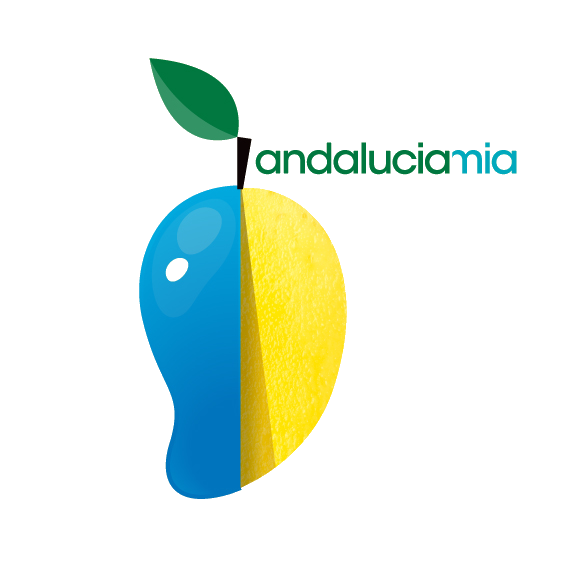Frigiliana what to see – the essentials not to be missed
Among the most beautiful Spanish village
Visit Frigiliana, one of the most beautiful villages in Andalucia, and in Spain
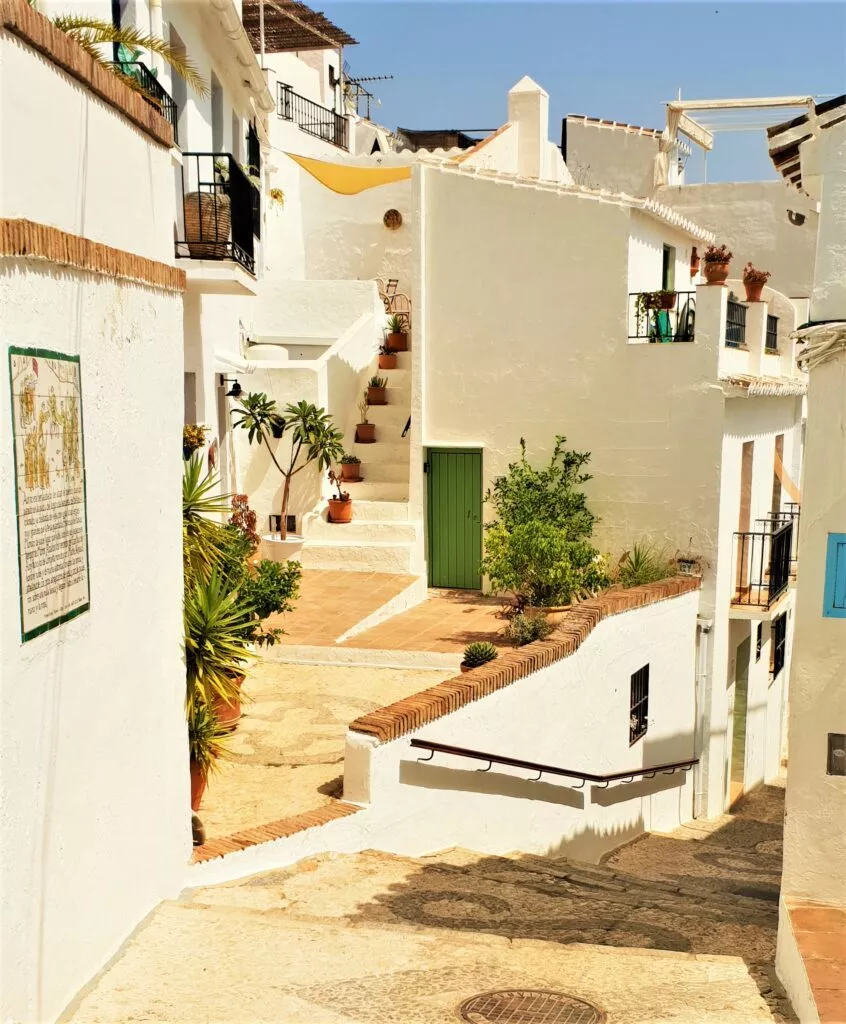
In this article you will find the essential information to visit and see the best of Frigiliana
- A few words about Frigiliana
- What is Frigiliana known for ?
- Visiting Frigiliana: what to see?
- What to do in and around Frigiliana ?
- activities
- walks around the village
- guided tours
- festivities
- Frigiliana map
- Where to park in Frigiliana?
- booking an accommodation
- Some useful links
- Experiences to discover in the province of Málaga
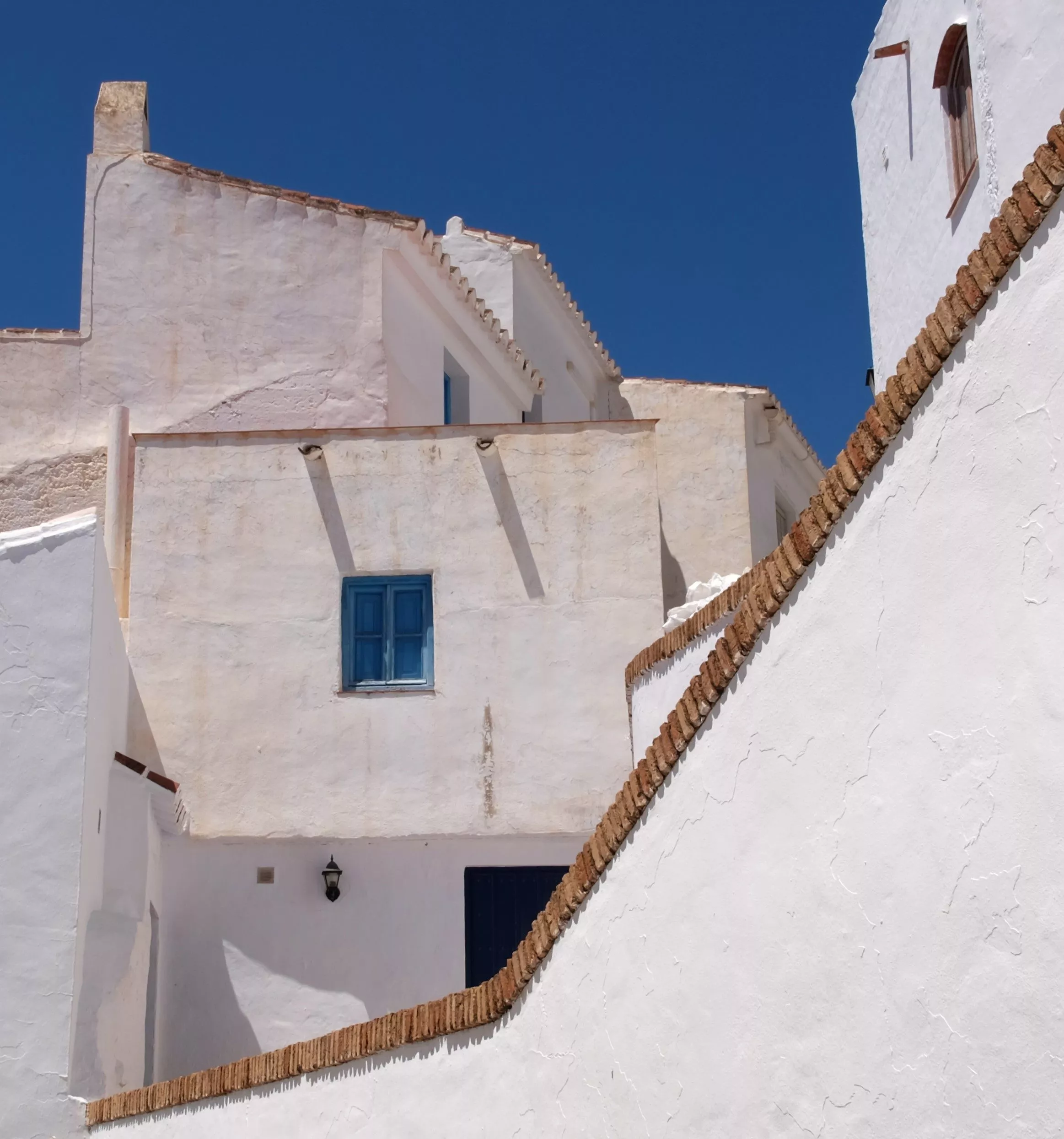
A few words about Frigiliana
Frigiliana is located in Axarquia in the province of Málaga. It has a beautiful historic centre which has retained its authenticity.
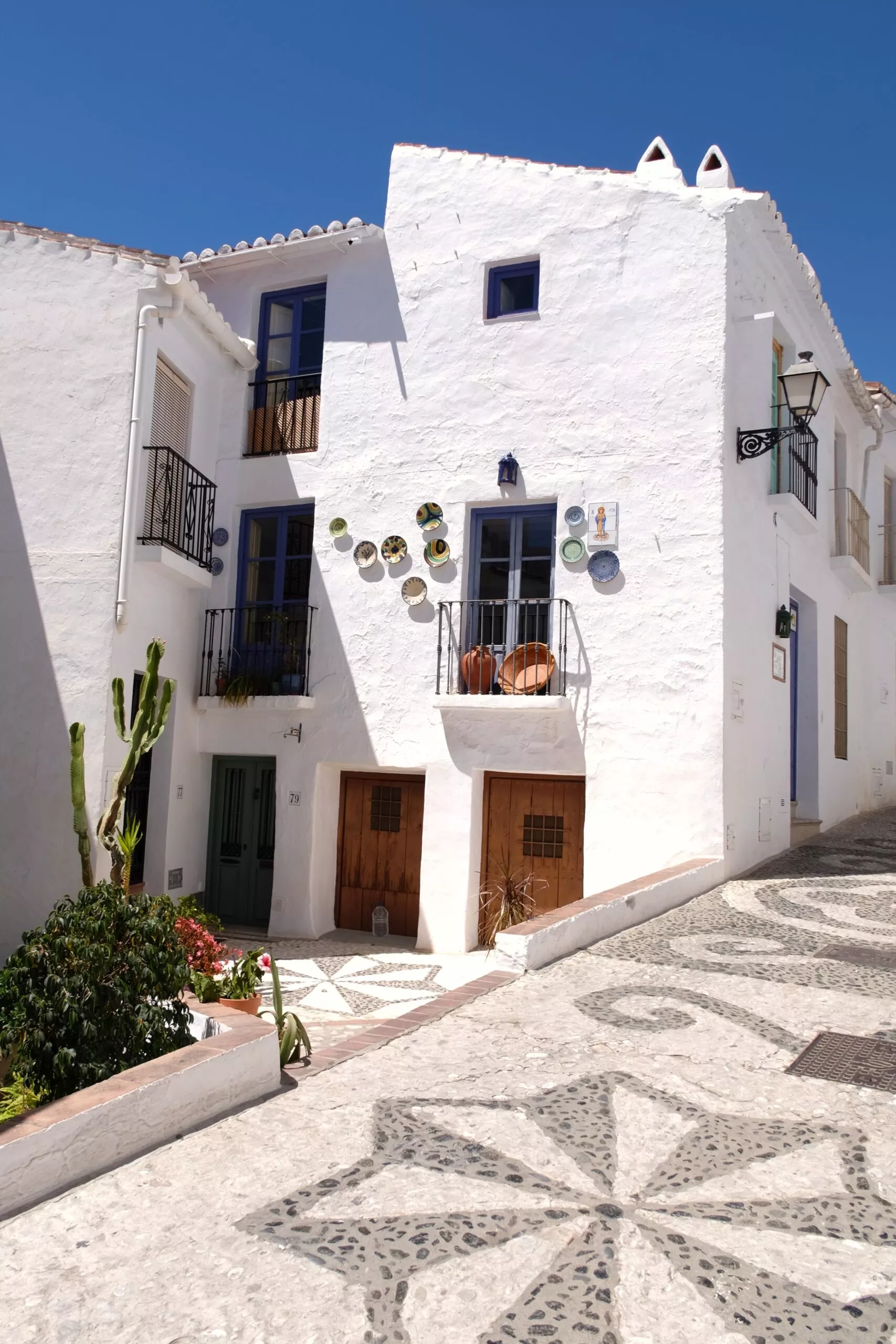
The site of Frigiliana was originally populated by the Phoenicians and later by the Romans. The latter built a fortress, known as Frexinius.
Later, during the Al-Andalus period, a castle called Hins Challana was built during the Caliphate period. The village grew during this period and took the name Fixmania during the Nasrid kingdom. Some ruins of the castle can be seen at the top of Frigiliana.
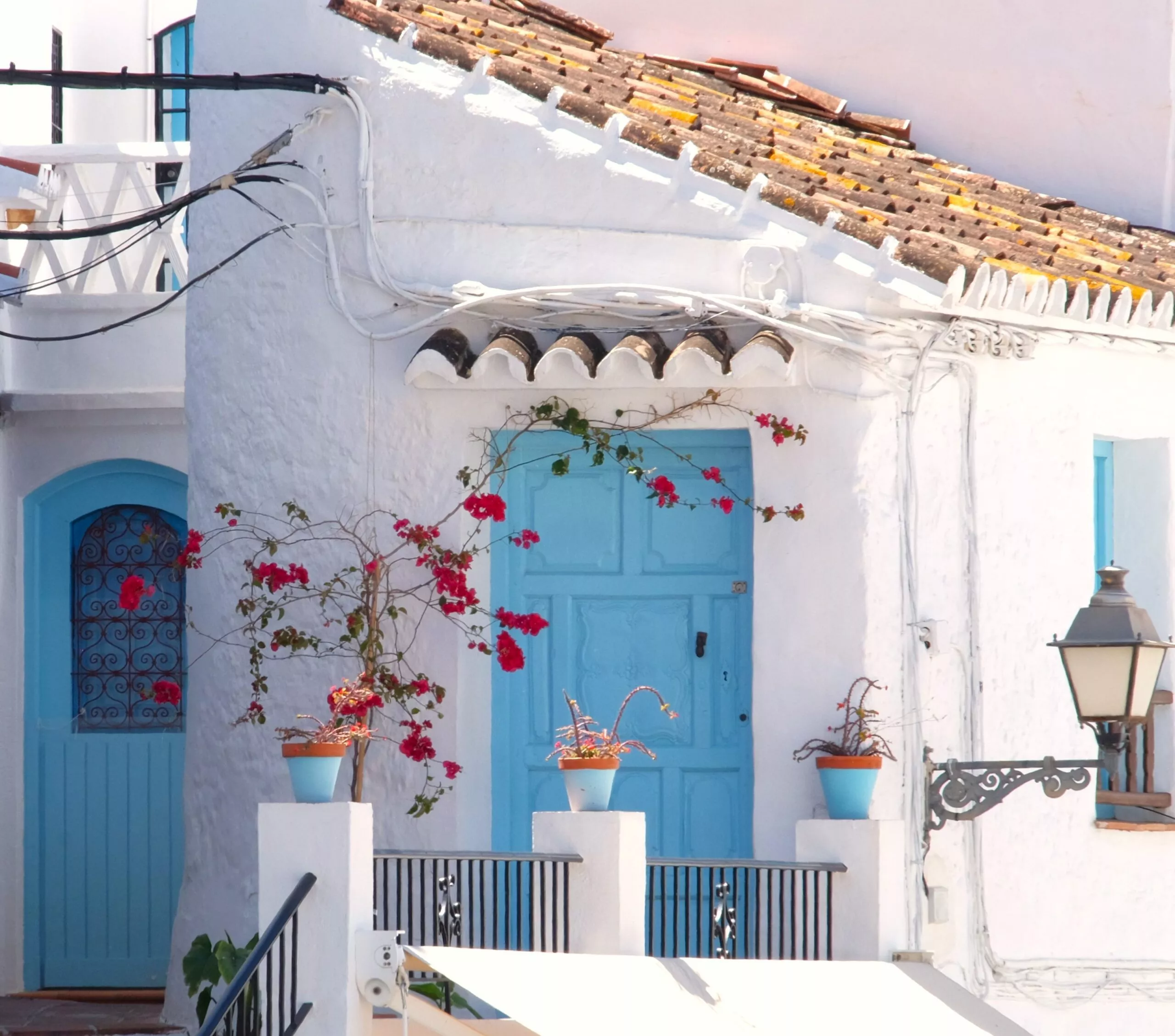
Frigiliana is also known for its role during the Alpujarra revolt of 1568. The fortress, on the rock of Frigiliana, was the site of a famous battle, lost by the Moors.
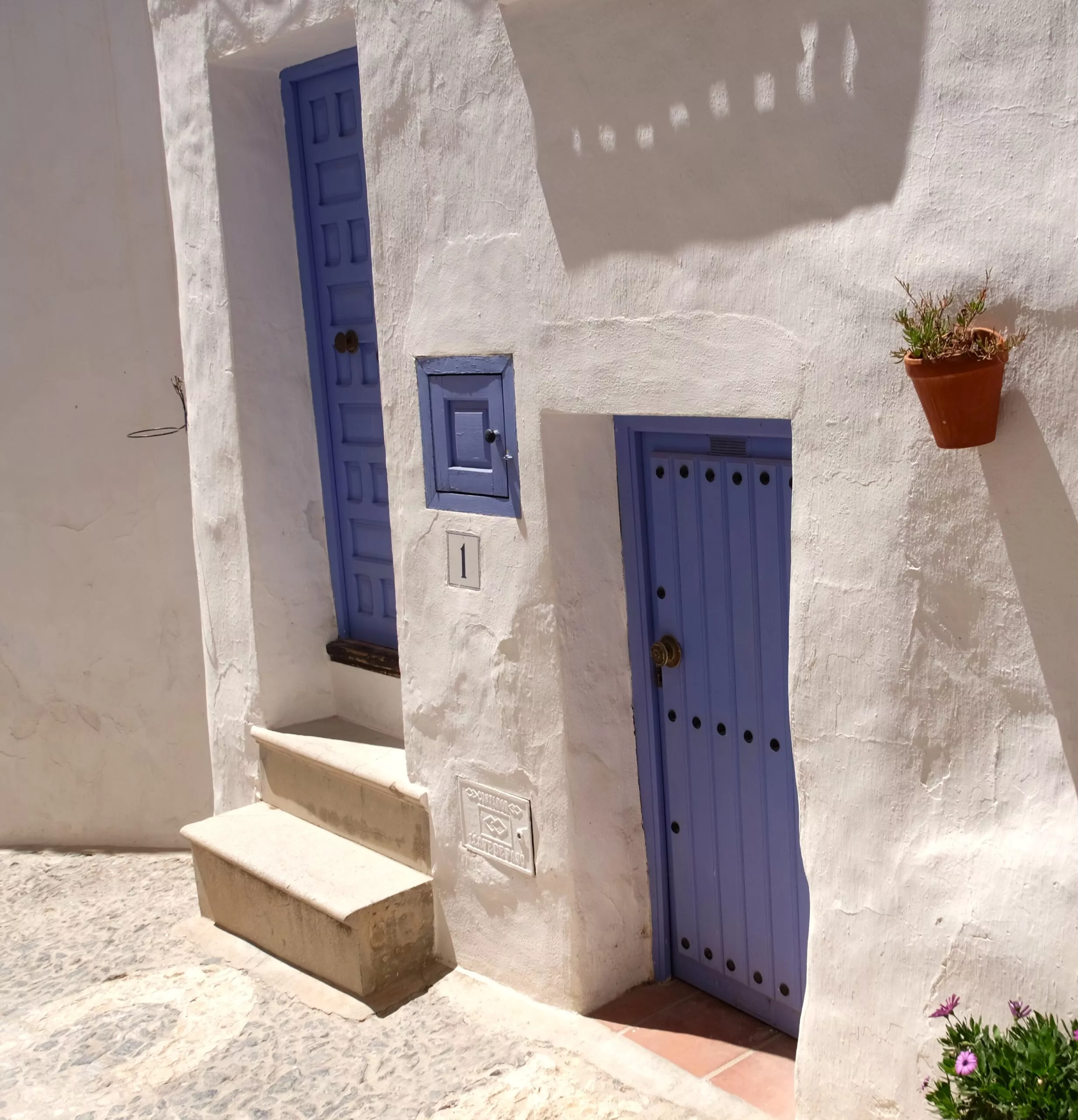
What is Frigiliana known for ?
Frigiliana is recognised as one of the best villages in Spain – Pueblos mas bonitos de España.
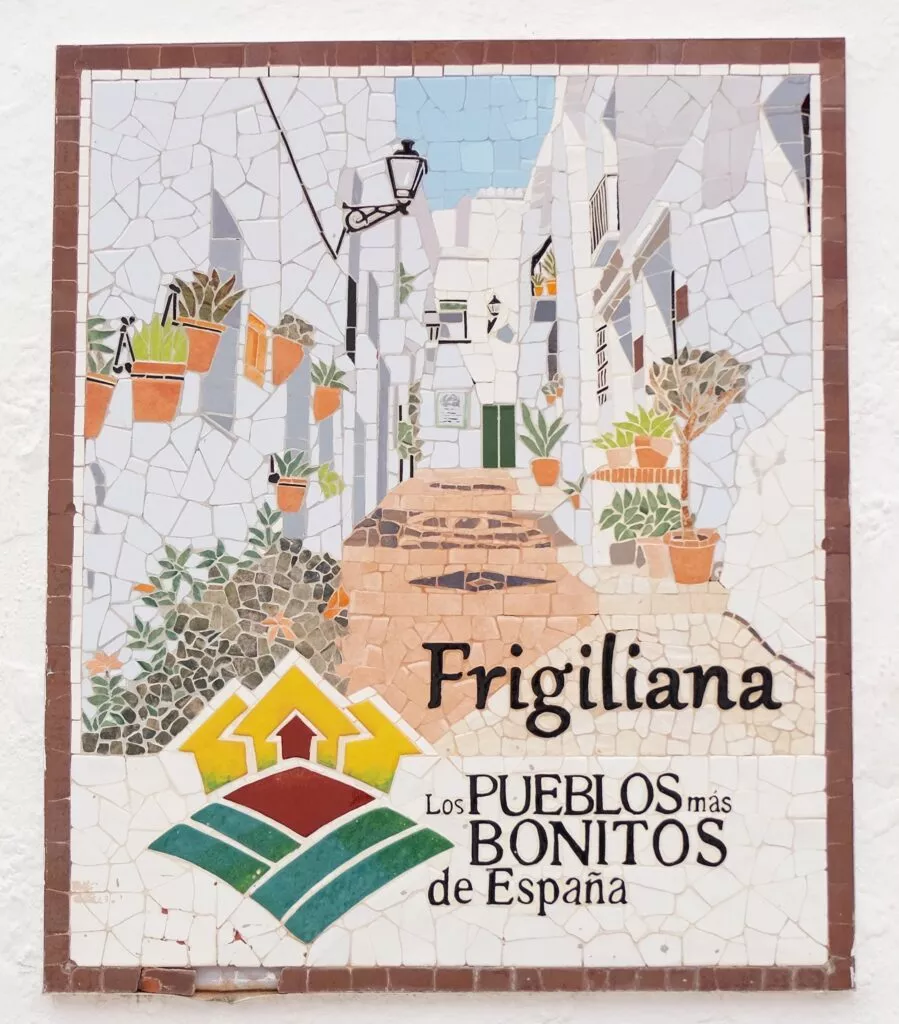
Frigiliana, along with Parauta and Genalguacil, is one of the only three villages in the province of Malaga to have this distinction.
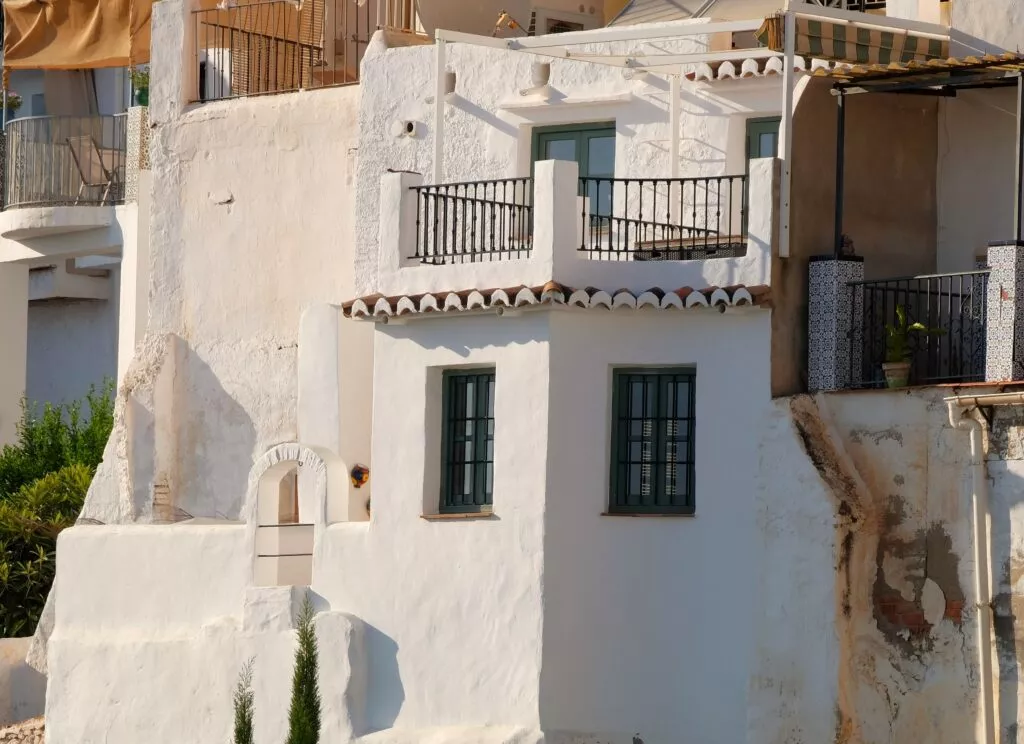
It has to be said that this village has an incredible aesthetic, with the permanent contrast of its white houses with the colours of the mountains, the sea and the blue sky.
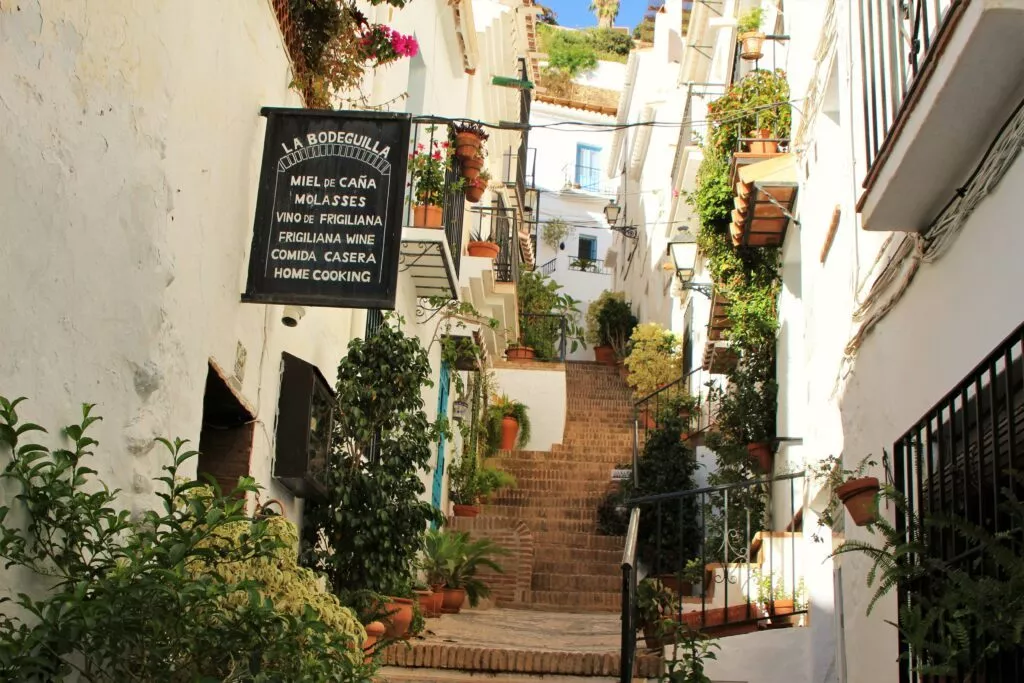
Frigiliana is the last village in continental Europe that still produces sugarcane honey.
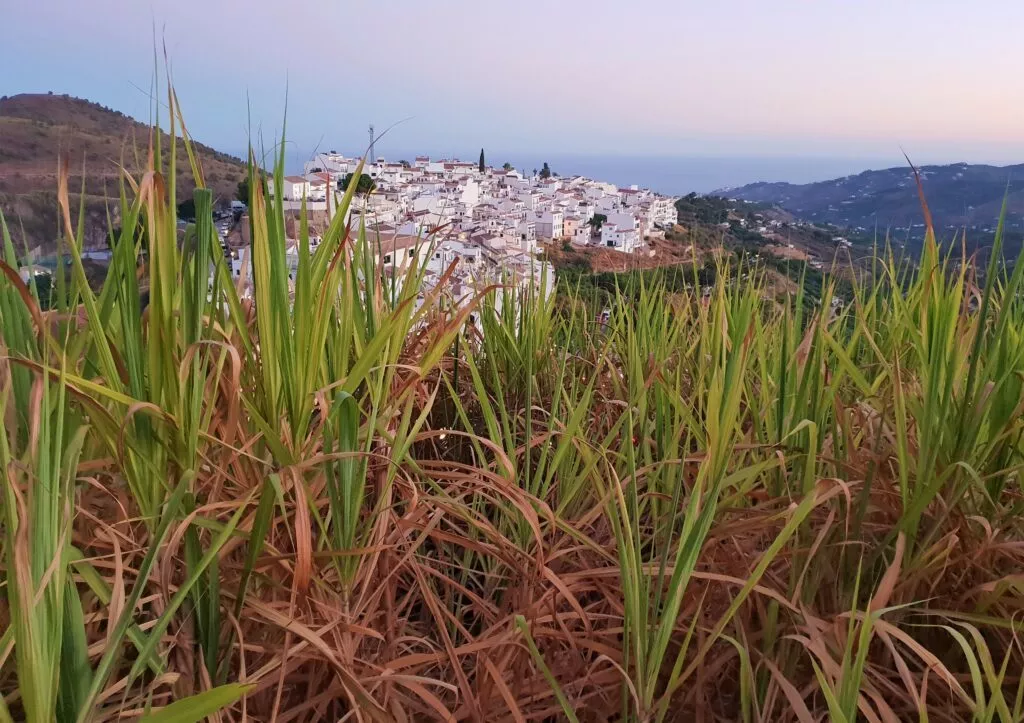
Over the years, it has become a local speciality that goes deliciously with many dishes such as fried egg-plants or cheese.
Here is a link to find out more about Frigiliana’s sugarcane honey.
Finally, Frigiliana holds one of the biggest festivals in Andalusia every year in August. This is the Festival of the Three Cultures. During 4 days the Christian, Jewish and Muslim origins and cultures of the village are celebrated. After the Málaga Fair, I think this is my favourite festival in the region.
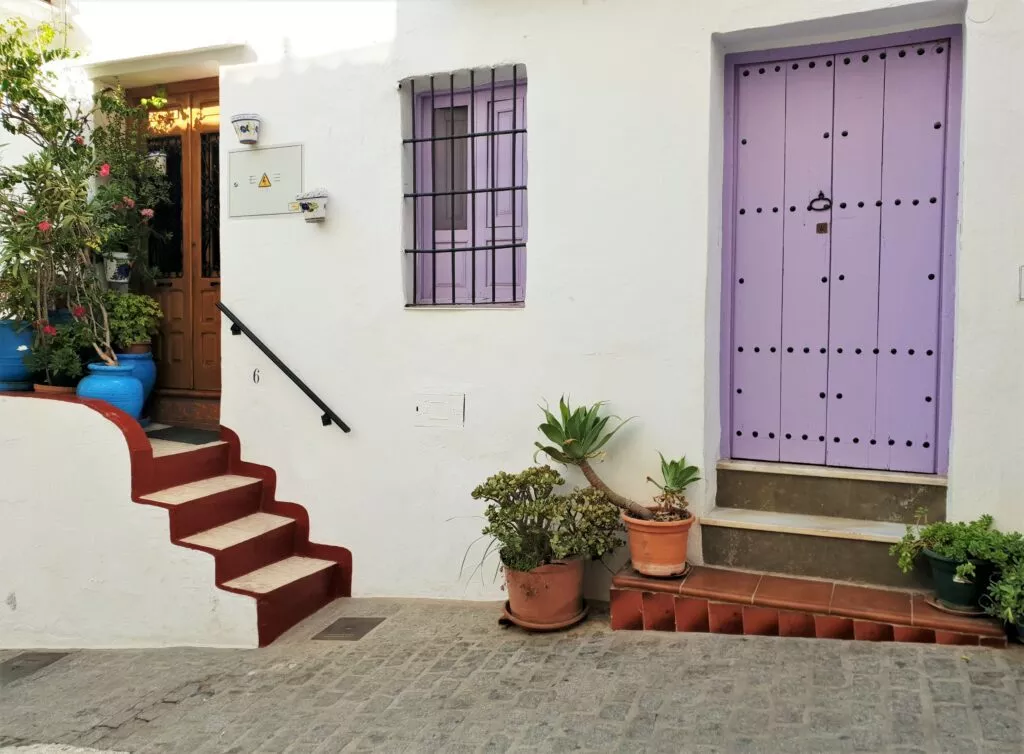
what to see in Frigiliana?
- Ingenio Nuestra Senora del Carmen
- Casa del apero
- Church of St Anthony of Padua
- The Hermitage of Ecce Homo
- The historic centre, classified as a historic and artistic site
- Barrio Morisco
- The Plaza de las tres culturas
- An incredible place to visit just outside Frigiliana
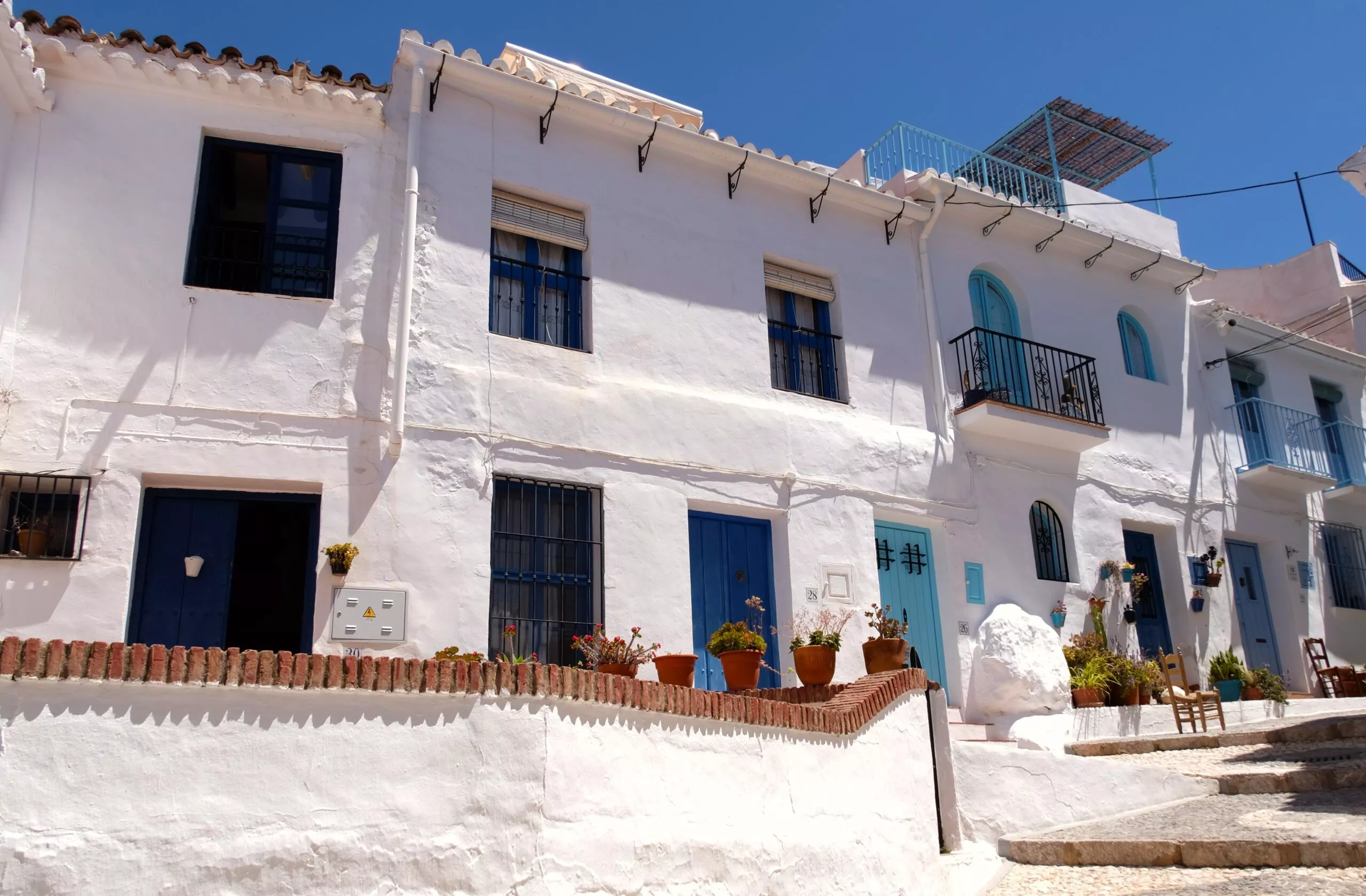
The Ingenio Nuestra Senora del Carmen
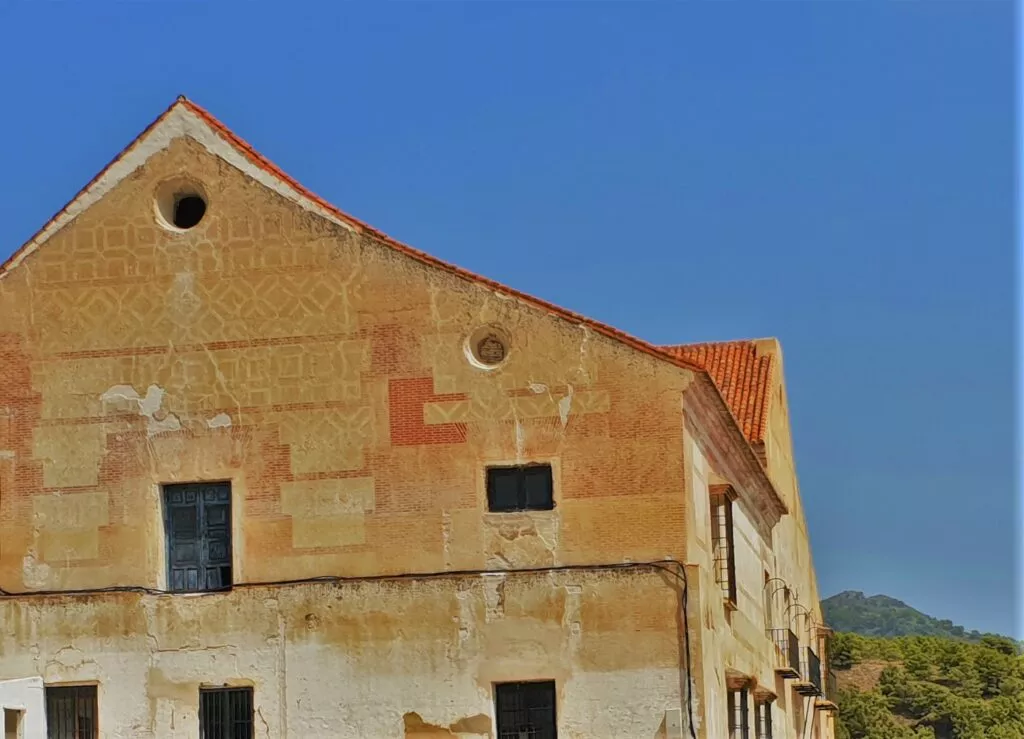
In addition to its beauty, the Ingenio Nuestra Senora del Carmen is the only place in Europe where sugarcane honey is still produced.
This building, dating from the end of the 16th century, was built partly with the materials of the Arab castle destroyed during the reconquest. Sugar cane honey has been produced here since 1630!
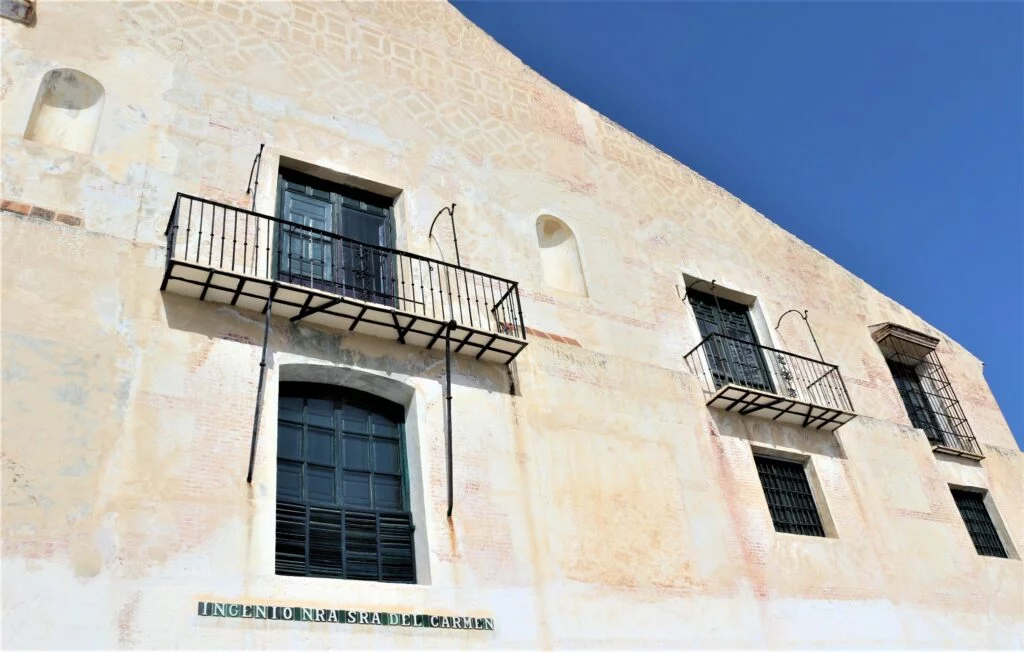
Visit the Ingenio in Frigiliana :
This is possible on certain days of the year, especially during the Día de la miel.
La casa del apero
The casa del apero now houses the Tourism Office.
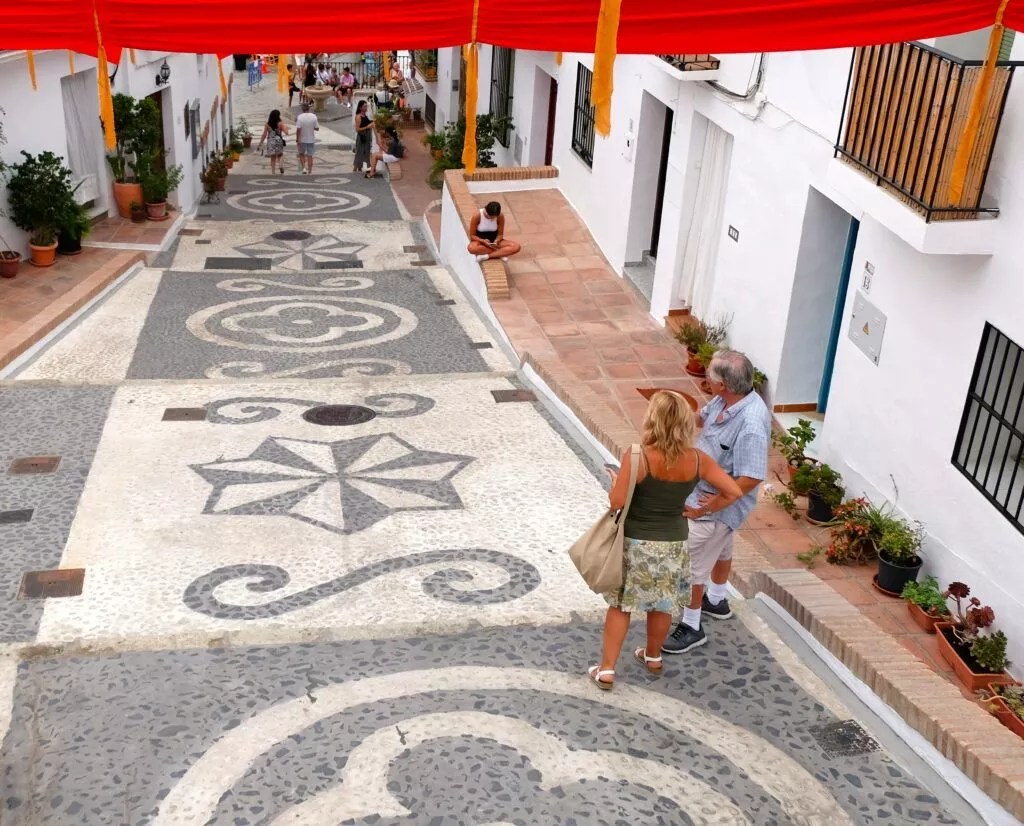
In the past, it was used as a storage place for agricultural tools, a barn and also a stable. It is worth a stop!
In addition, you can enjoy a beautiful view of the Ingenio and the Sierra de Almijara.
The Church of St Anthony of Padua
This church was built in 1676, on a former hermitage, which was built on the former mosque. The minaret remains from the old mosque, which was preserved and then transformed into a bell tower.
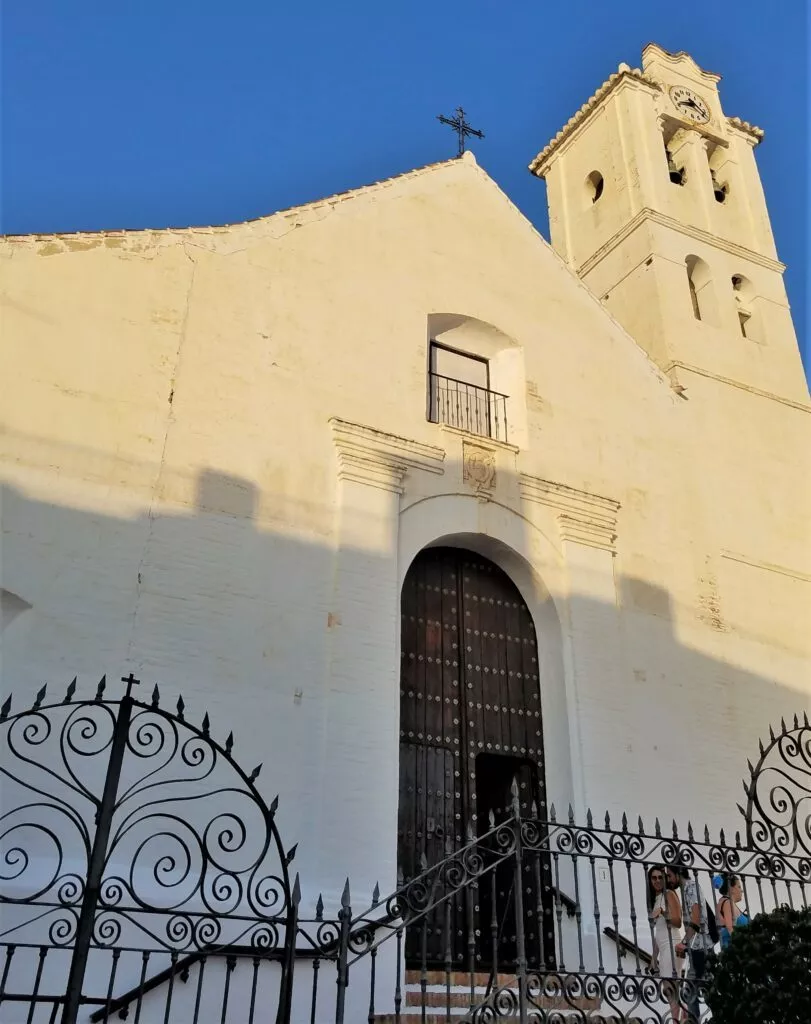
I always think to myself… the voice of the muezzin or the sound of the bells… The call to prayer is always made from the same place since centuries!
Hermitage of the Ecce Homo
This hermitage dates from the 18th century. There are several traditional Christian festivals celebrated here every year.
The historic centre a must-see in Frigiliana
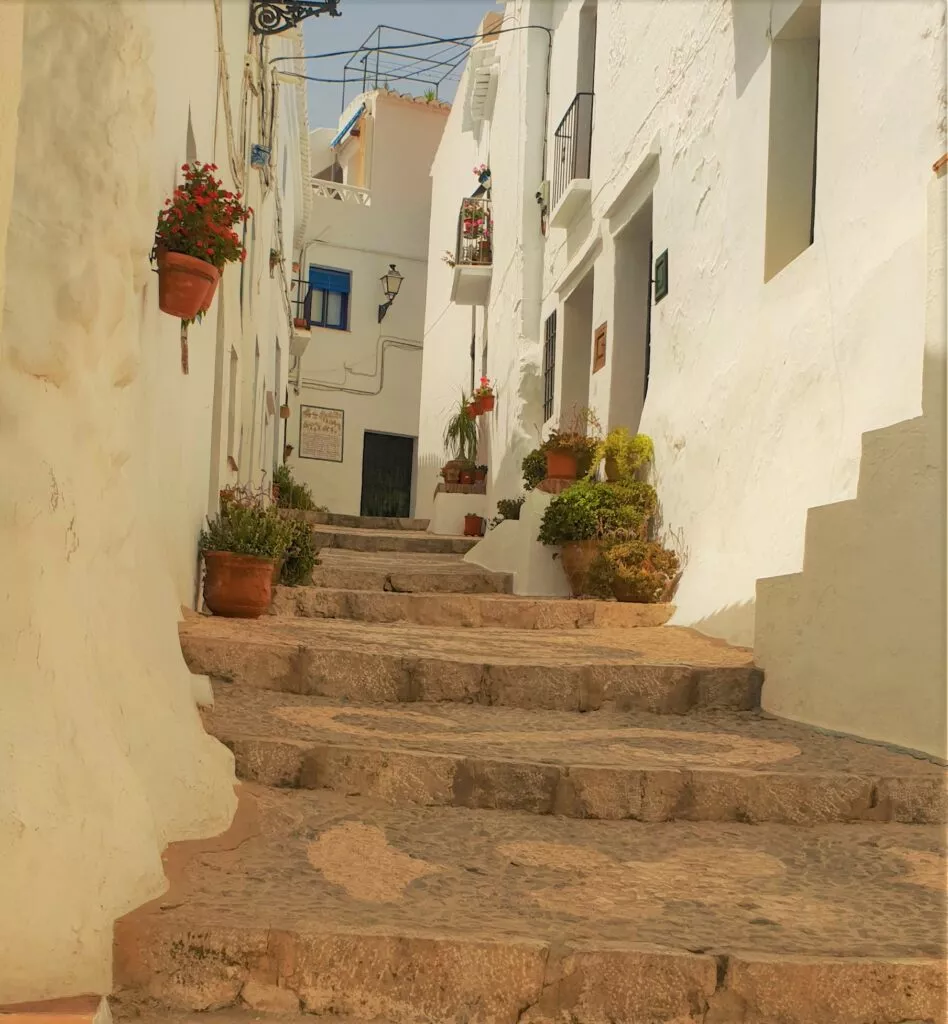
You almost want to get lost in the narrow streets of Frigiliana.
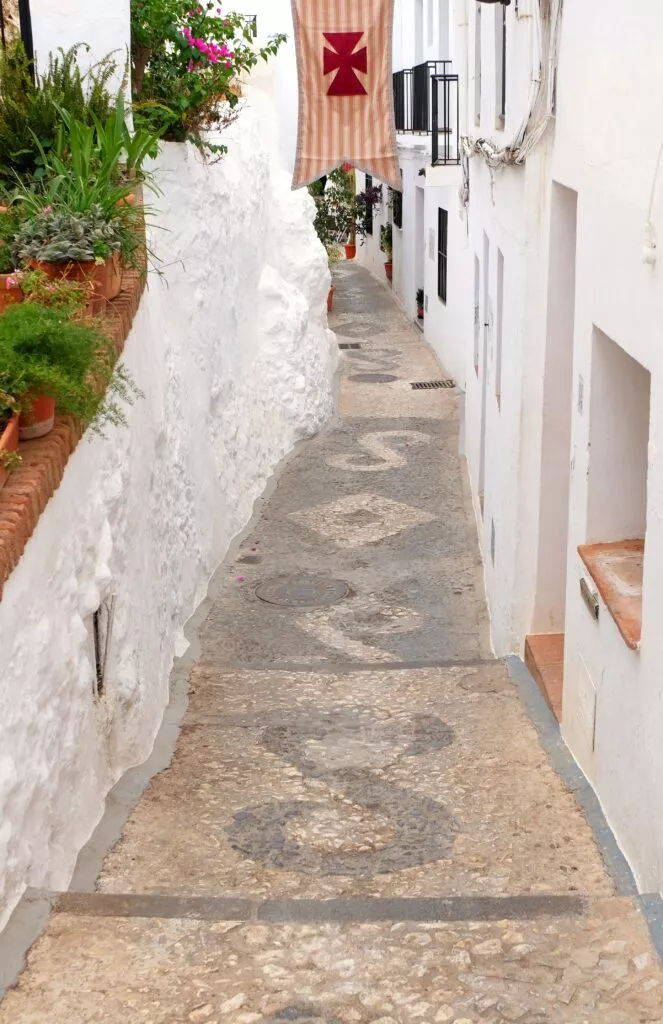
A visit to Frigiliana Old Town is a must in this fabulous white village.
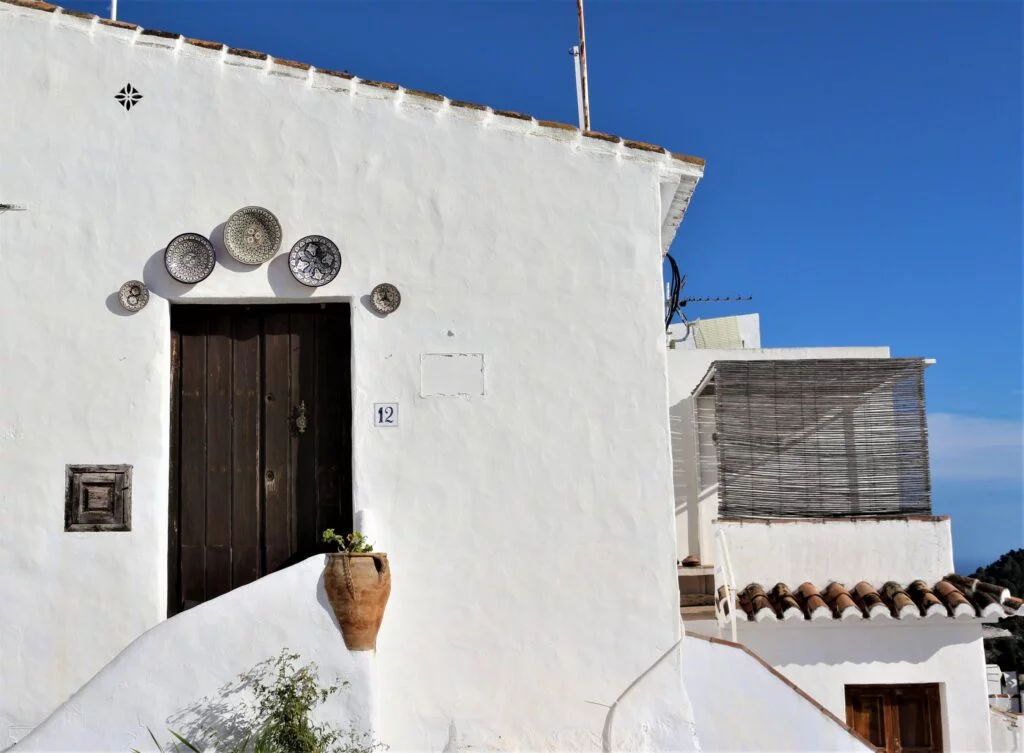
The historic centre has been classified as a historic-artistic site since 2014.
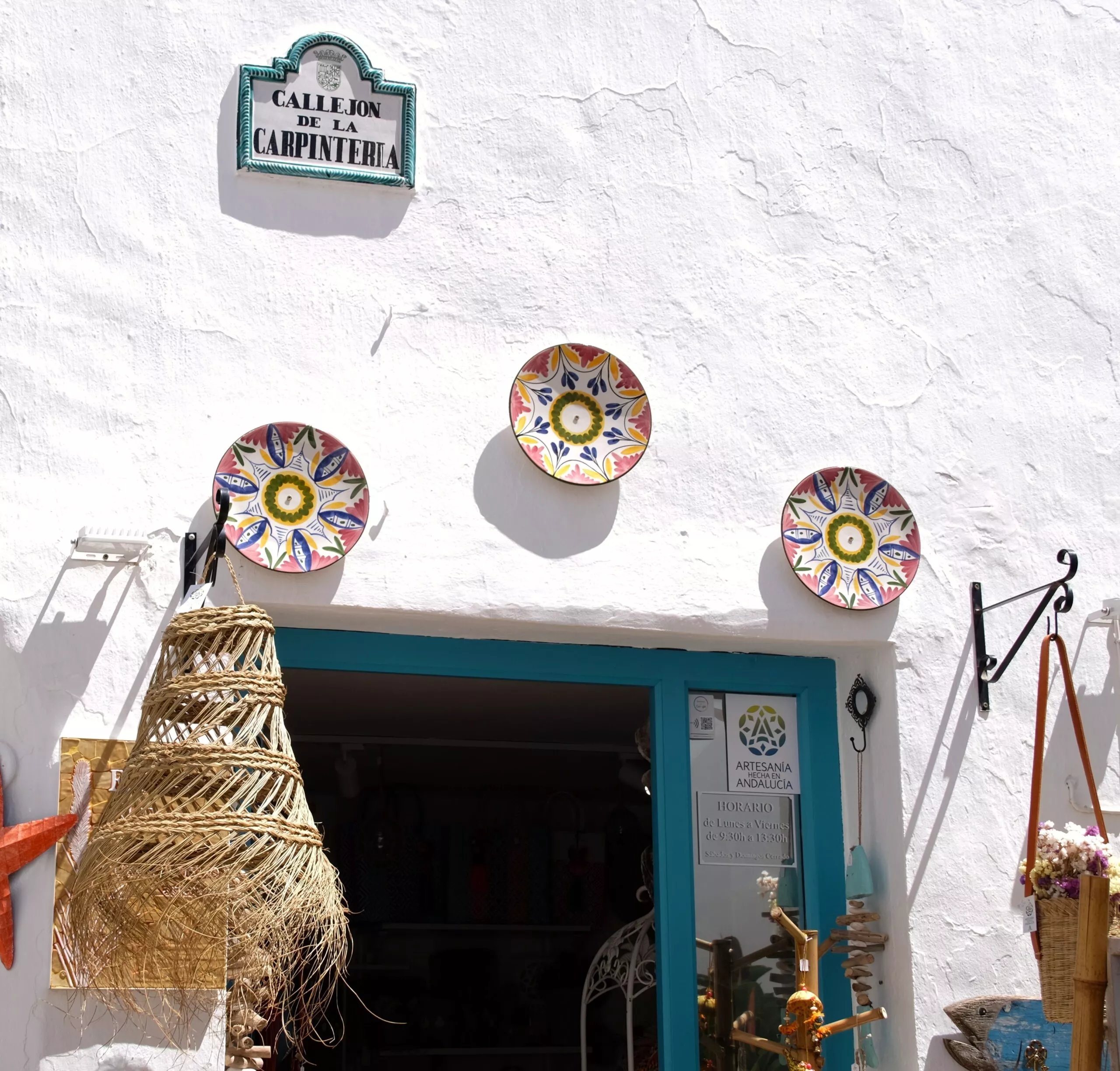
The name of Frigiliana Old Town is “narrio morisco” (Moorish neighbourhood) or “barrio alto” .
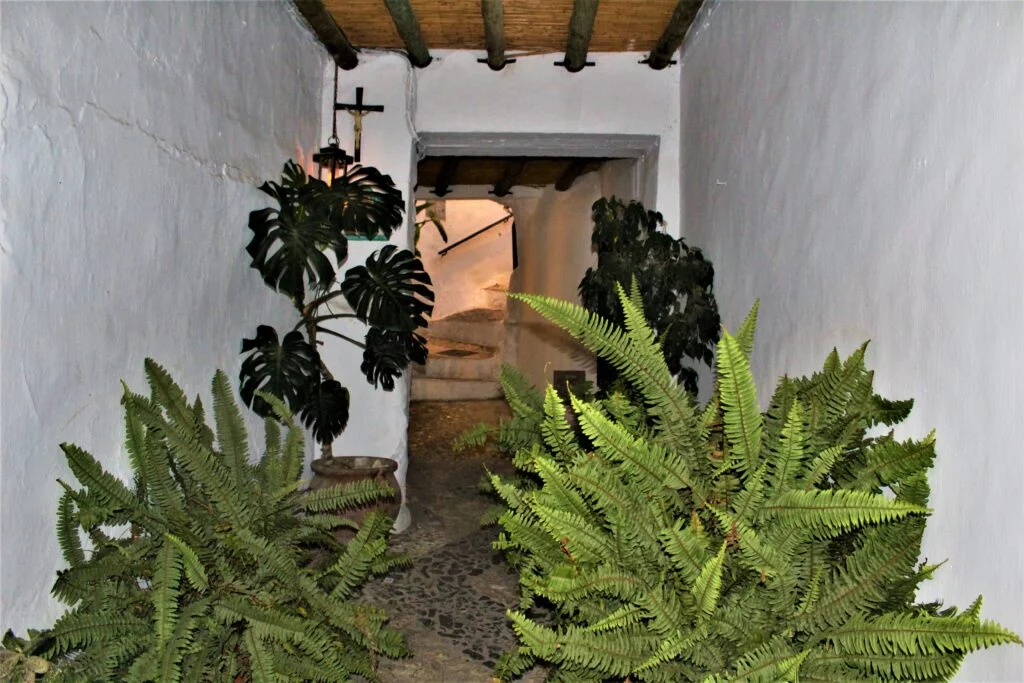
We walk through its narrow streets, full of beauty and charm, hoping to get a little lost…
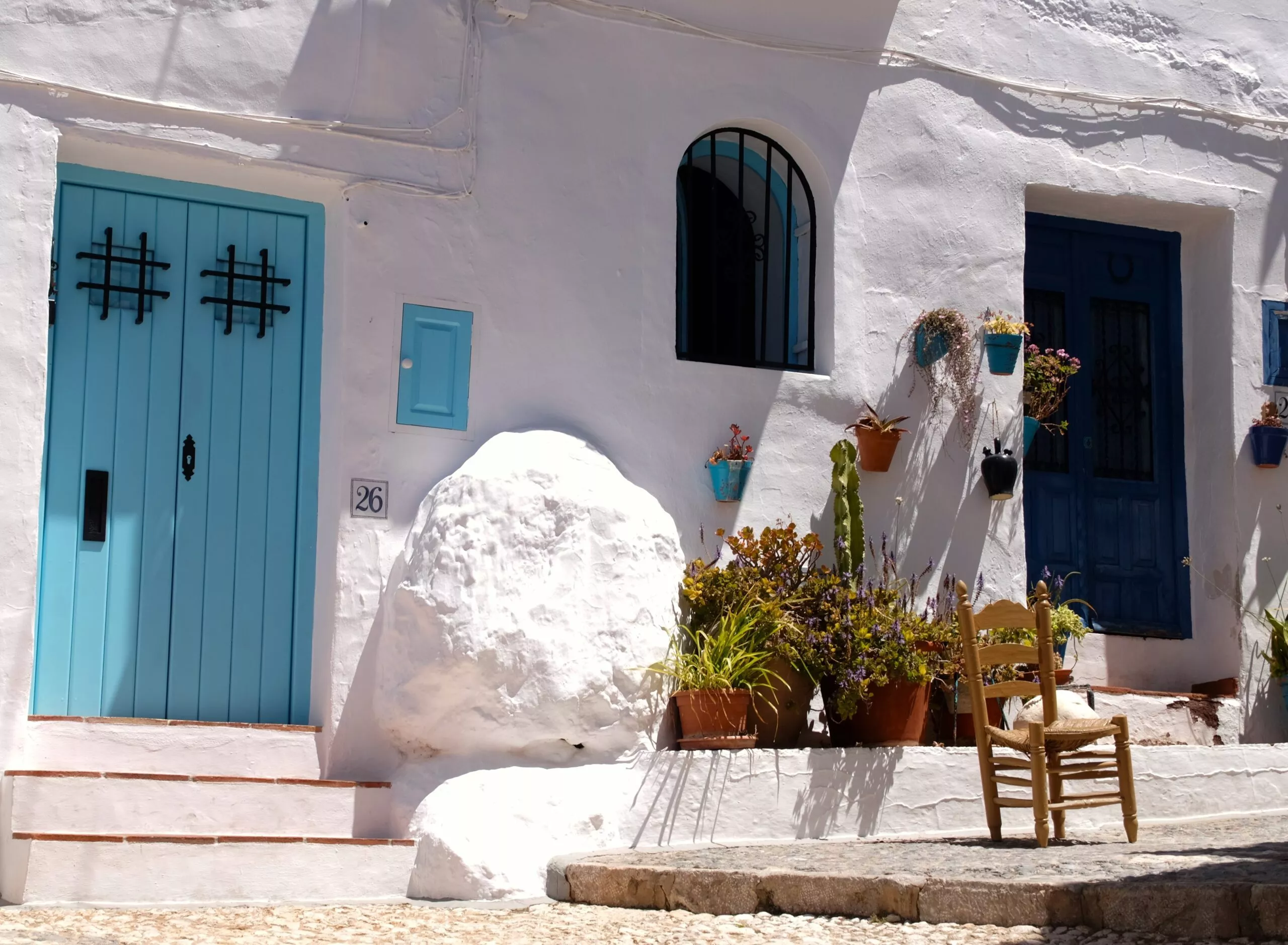
You can see the courtyards of beautifully decorated houses.
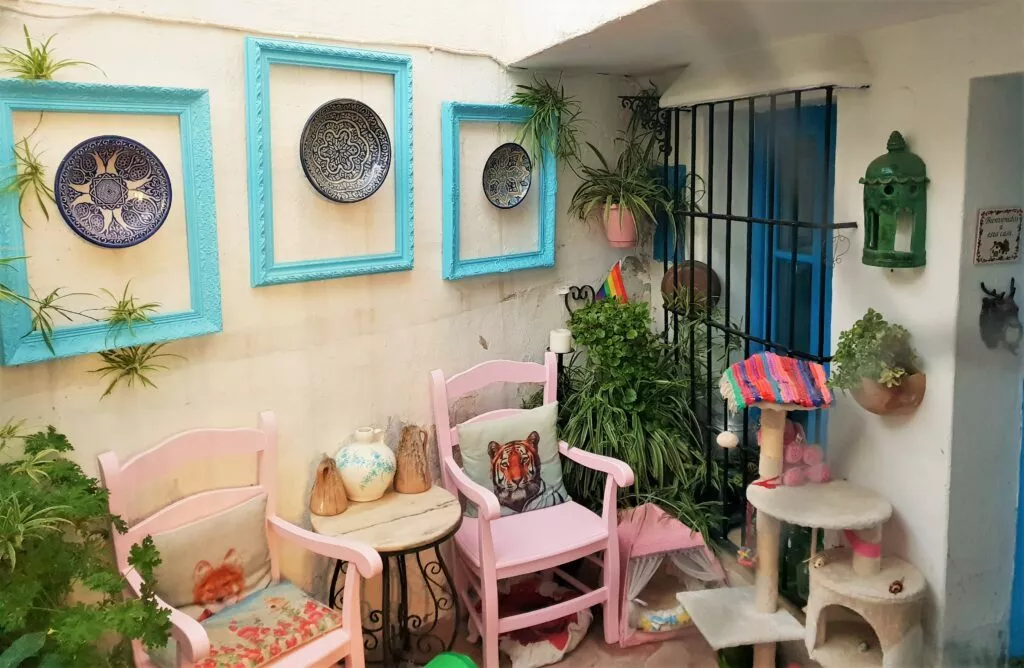
And, don’t hesitate to take a walk at night in the historic centre, after a good dinner. This is a very charming walk.
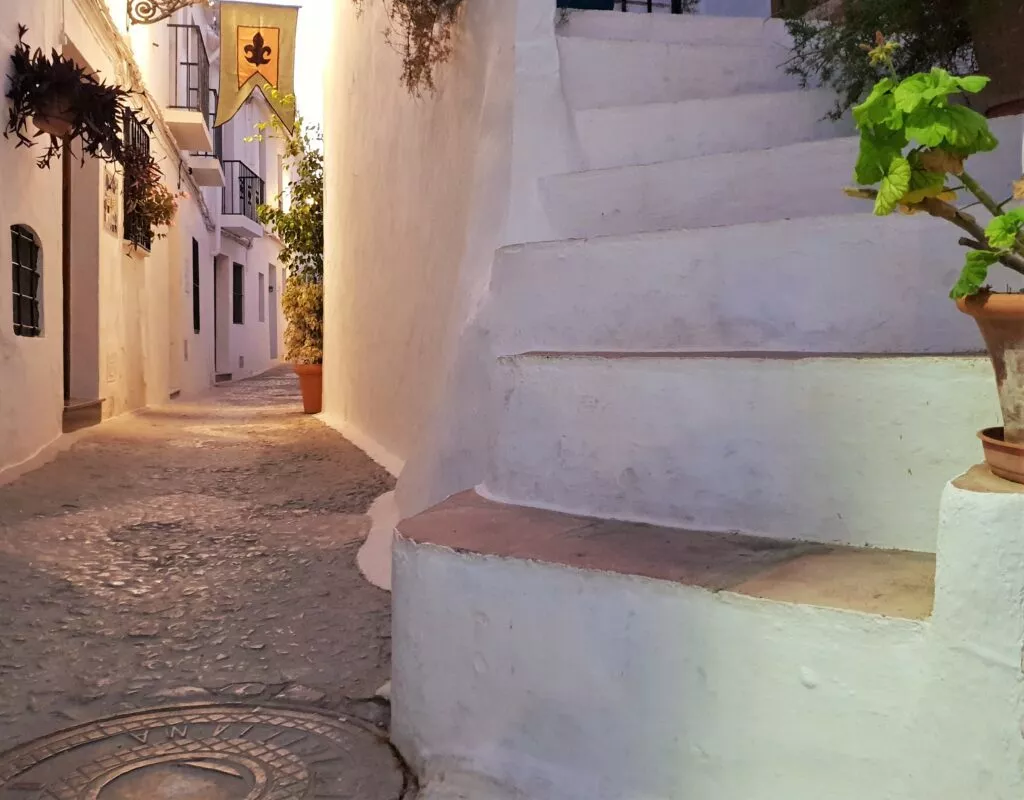
On the way to the Plaza de las tres Culturas, you pass the old posito, the place where food was stored, mainly cereals at the time.
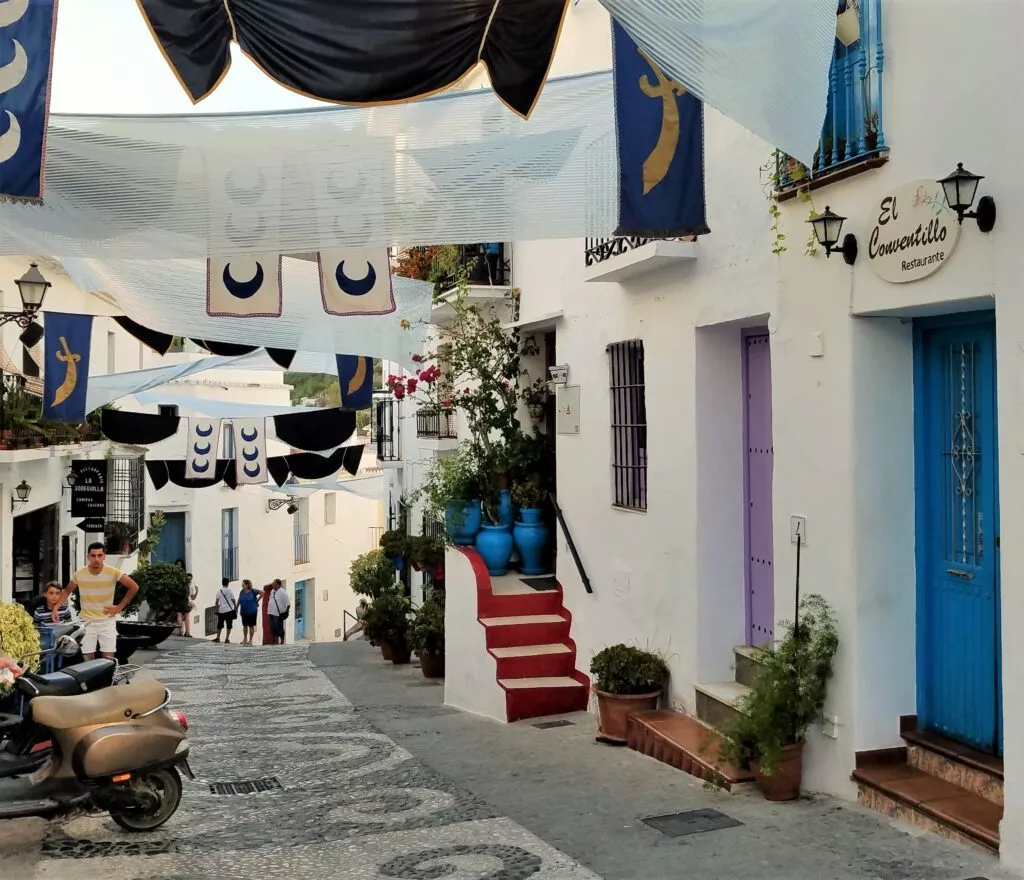
The Three Cultures Square the iconic place to see in Frigiliana
This is the most important square in Frigiliana, where people meet for lunch, drinks and parties. From this square you can admire the Ingenio, the building where sugarcane honey is made.
Right next to it you will also find a shop selling local crafts:
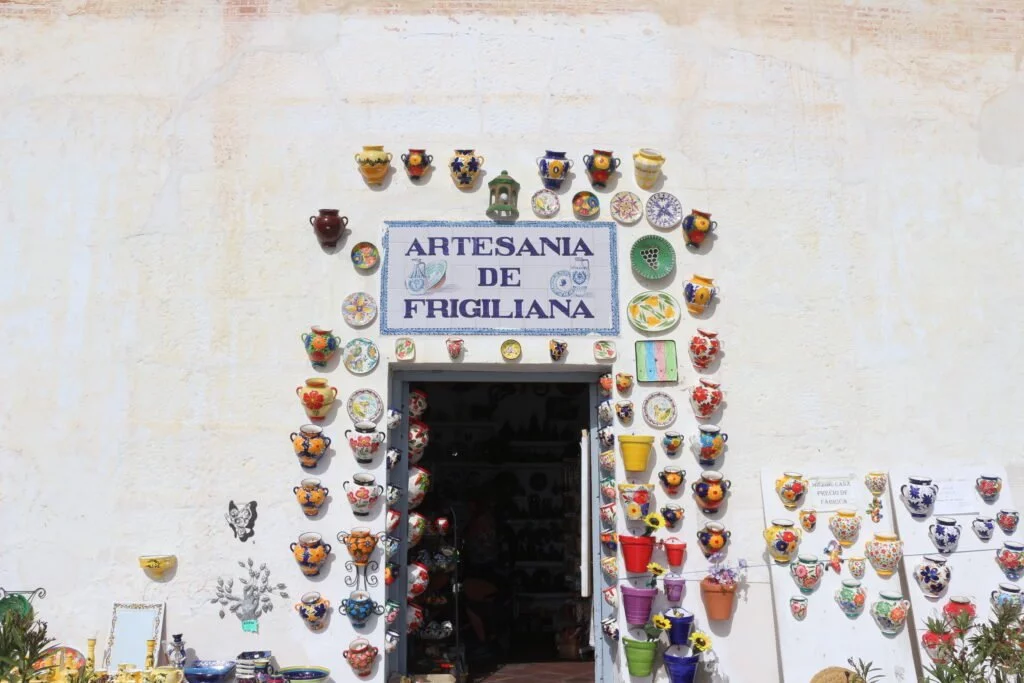
And if you want a lunch break in the barrio morisco, you have the El Adarve restaurant, which is hidden at the end of an alleyway – see below -. This restaurant has a beautiful terrace with a sea view!
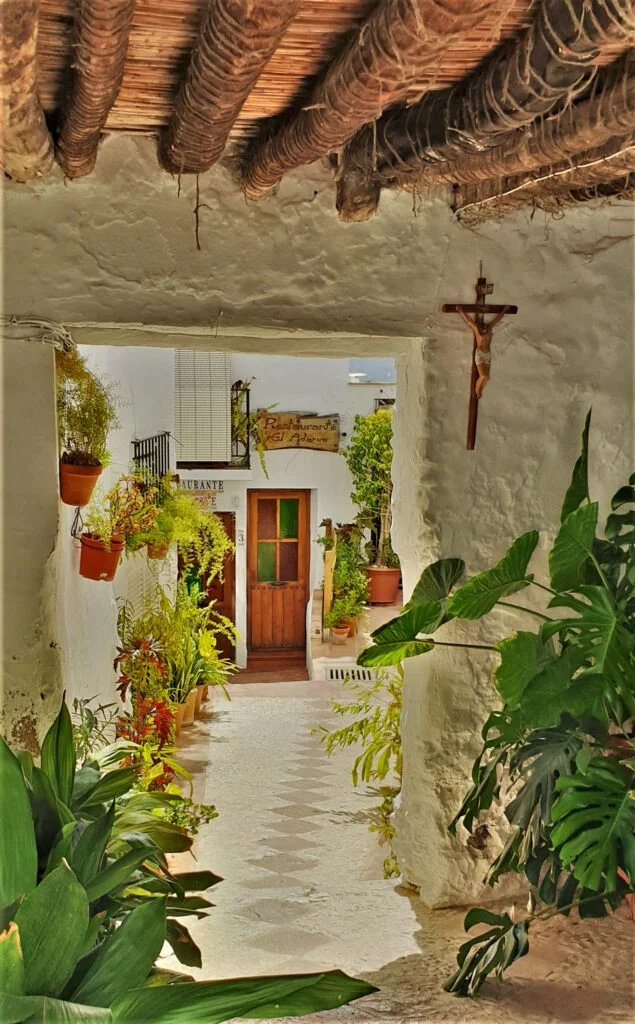
If you are in the western part of the Costa del Sol and would like to visit Frigiliana and Nerja, you can use the following link to book a tour from Málaga, Torremolinos, Mijas or Benalmadena.
What to visit right next to Frigiliana?
There is an exceptional hamlet to see just a few kilometres from Frigiliana. This hamlet is well worth a visit for its history and beauty.
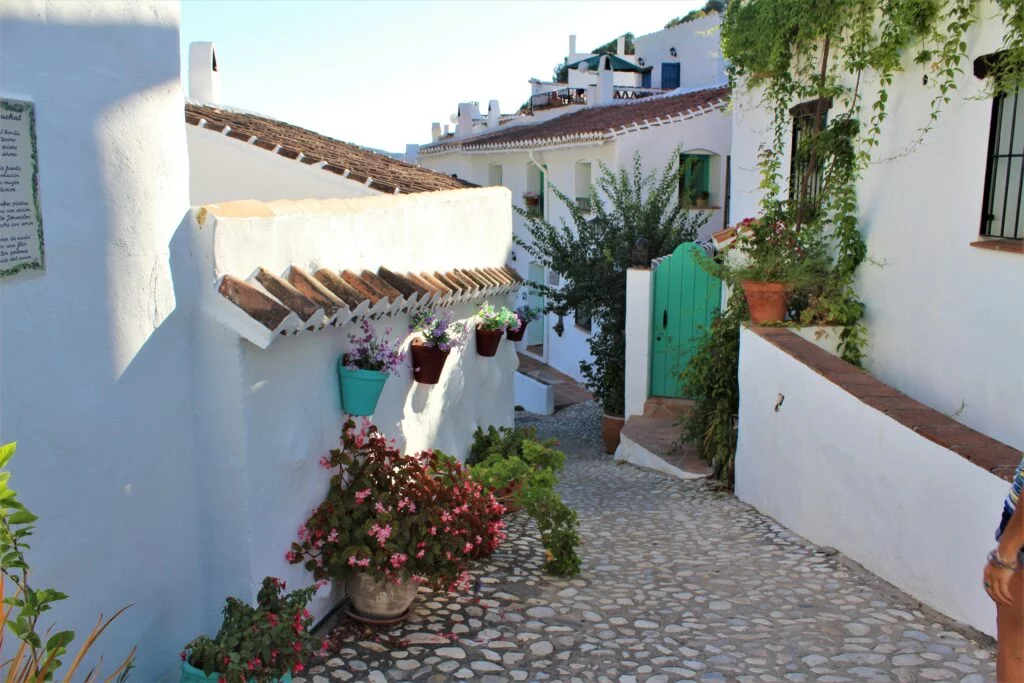
This is El Acebuchal, nicknamed The Lost Village.
What to do in and around Frigiliana ?
Activities near Frigiliana
In the surroundings it is possible to find very nice activities:
- horse riding, on the beach or in the mountains
- diving in Nerja and Torrox
- guided tours (villages of Axarquia, Cordoba, Alhambra,…)
- via ferrata (Caminito del Rey,…)
- hiking (El Saltillo with the hanging bridge,…)
- canyoning (in the rio Verde,…)
- astrotourism in Alhama
- snorkeling
- book tickets for the Nerja cave
Use the following link to access all the activities to do in Frigiliana. during your holidays. This link provides you with all the details of each activity.
Hiking trails around the village
There are several walks starting from the village. There is even a very nice hike that starts right next to the Plaza de las Tres Culturas and the Ingenio. This is the Rio Higueron walk.
Between Nerja and Frigiliana there is a very famous hike:
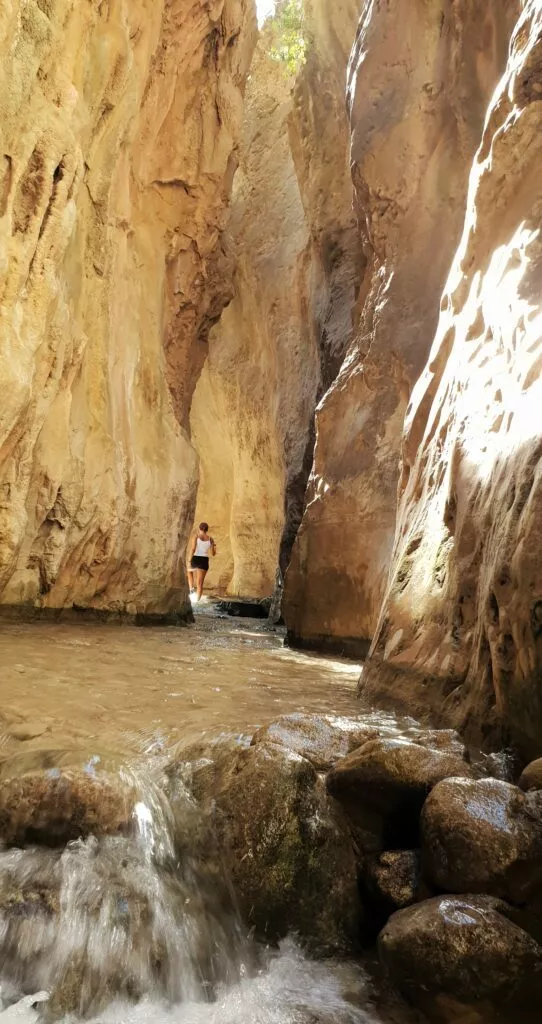
The rio Chillar hike is a must for hikers…with their feet in the water!
Guided tours of Frigiliana and the surrounding area
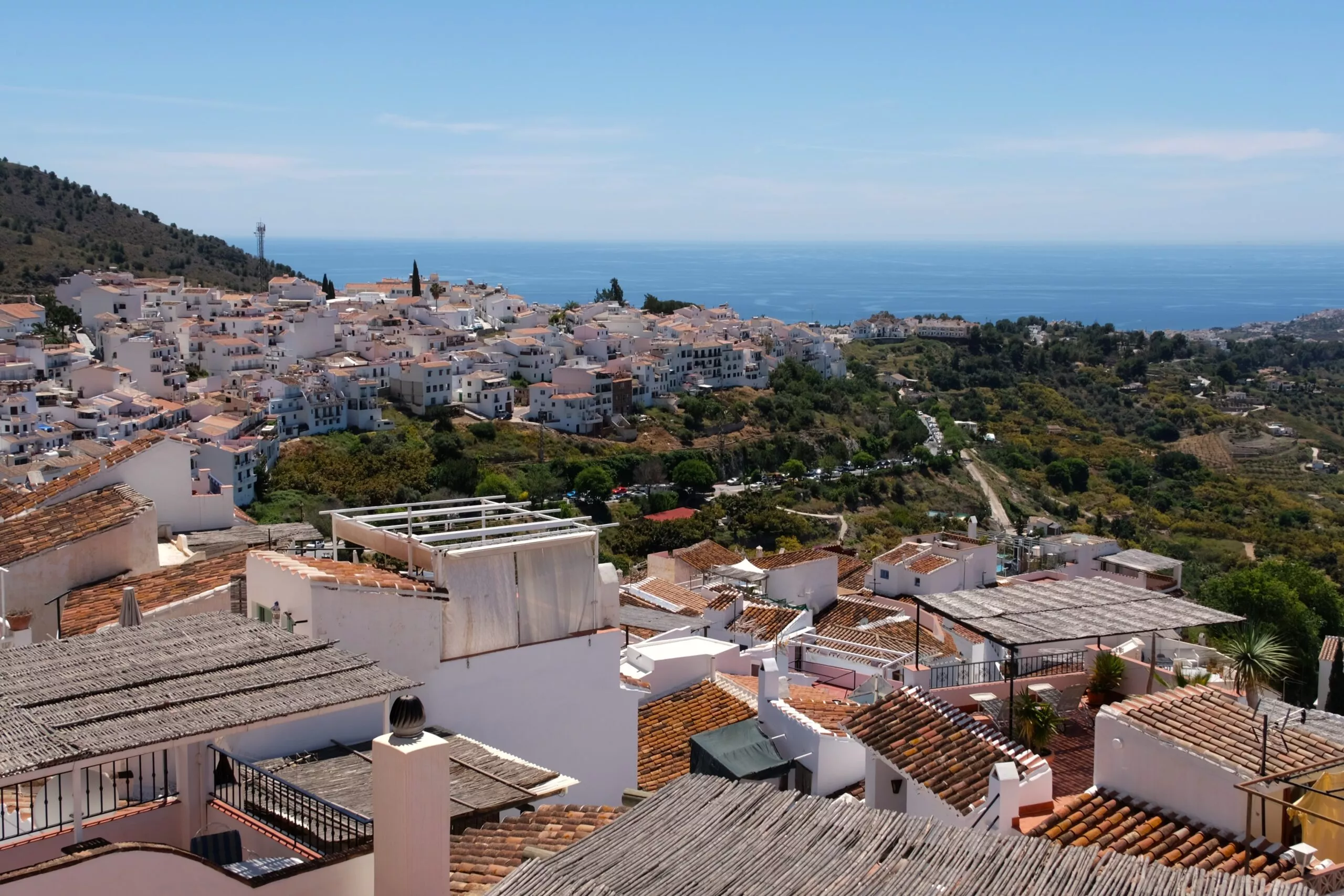
A very good local guide, Cipriano, offers thematic and seasonal guided tours of Frigiliana and the surrounding area.
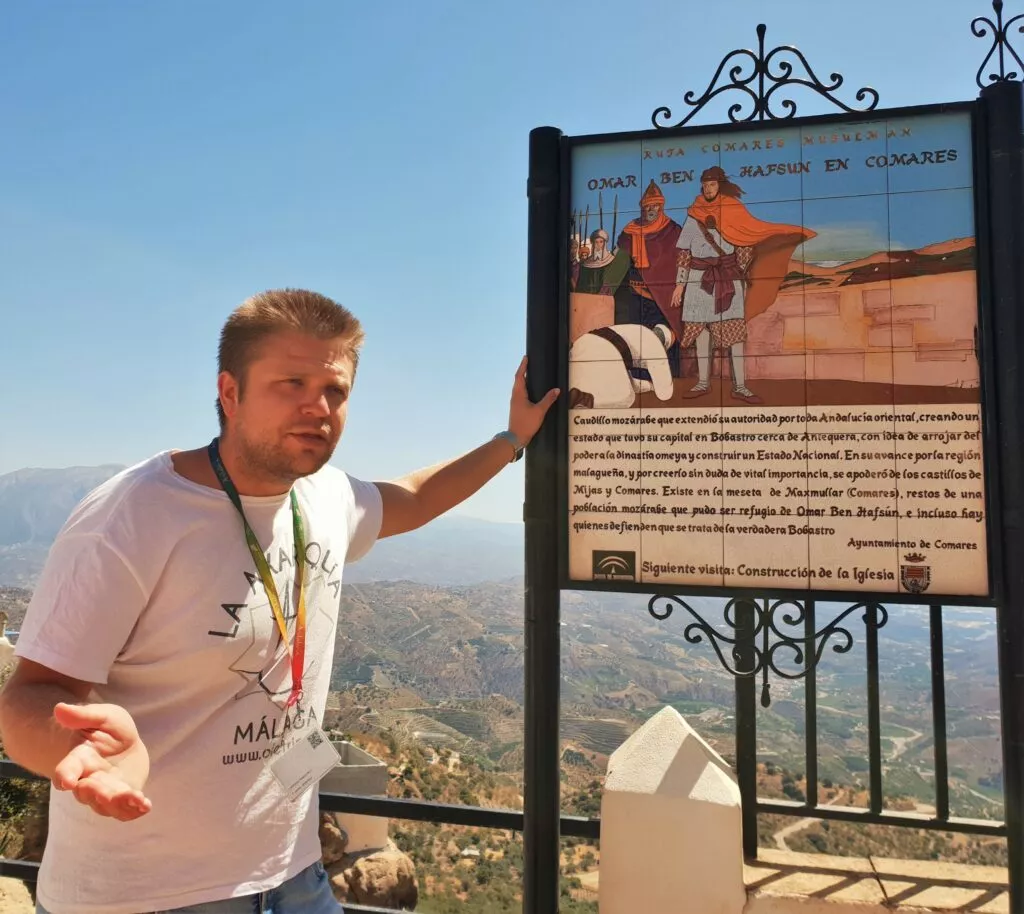
The guided tour of Frigiliana and El Acebuchal
Cipriano organizes from Nerja, Torrox and Torre del Mar the visit of Frigiliana and El Acebuchal, the famous hamlet forgotten for 50 years!
You can find the details of the day and the possibility of booking online, in the following link: Frigiliana and El Acebuchal Tour.
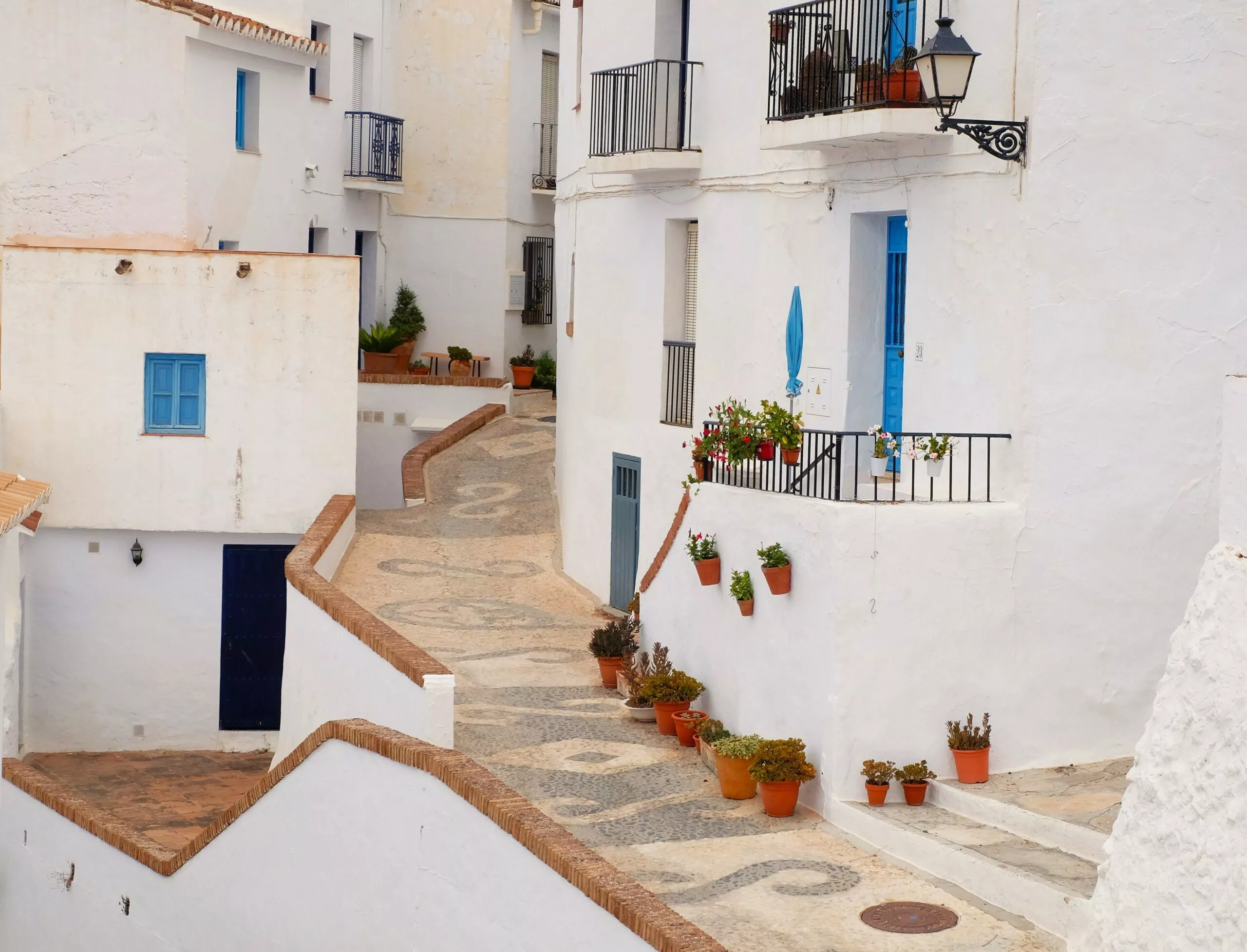
The guided tours are always done in small groups (2 to 8 people max.) to discover the authentic Axarquia.
In the following links you will find all the details and prices of the tours he offers.
Here you can find all the guided tours in Axarquia from Torrox, Nerja and Torre del Mar.
In this link you will find the other tours in Andalucia from Nerja, Torrox and Torre del Mar.
Festivities
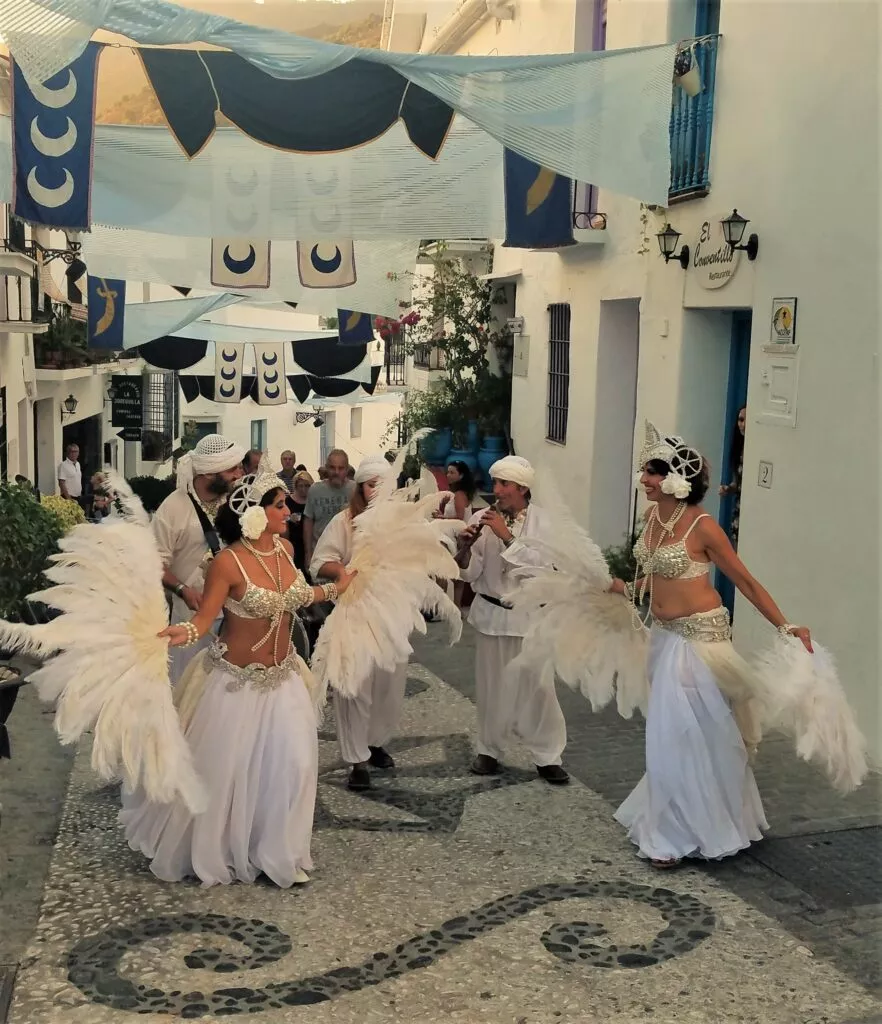
Below you will find links to the main festivals and fairs in Frigiliana :
- The Three Cultures Festival, end of August
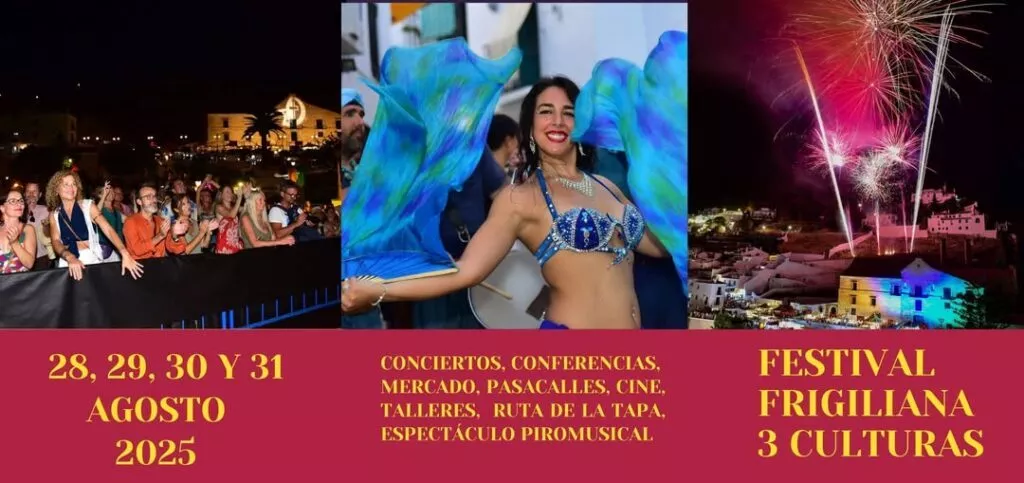
- Romería de San Sebastián, 20th January
- Carnivales, 1st Saturday of Lent in February
- Semana Santa, end of March and beginning of April
- Festival Internacional de Danza Oriental, mid-April
- Día del Caballo, 1 May
- Candelarias, 7 September
- Cruces de Mayo, 3 May
- Sugar Cane Honey Festival :
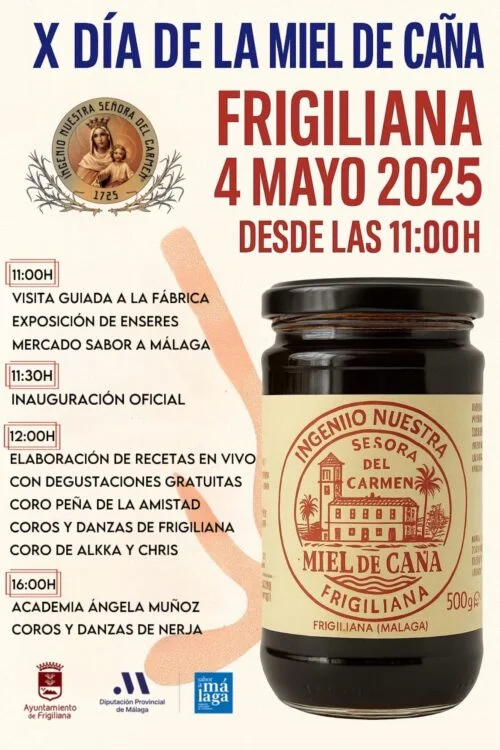
- Festival de Cante Flamenco, in August
- Frigiliana Fair – Feria de San Antonio, 13 June

- Certamen de Bailes Populares, mid-August
Where is Frigiliana on the map?
Where to park in Frigiliana?
Parking in Frigiliana in high season can be complicated, as in all white villages in Andalucia.
The easiest way is to park along the road from Nerja, just before the entrance to the village. Alternatively, there is a car park just after entering Frigiliana, at the Plaza de las tres Culturas.
Book accommodation in Frigiliana
Some useful links (car hire, ideas for visits)
Easy and economical bookings
If you are in Andalucia as part of a tour with several major cities to visit, here are some links that may be of interest:
Seville
Seville, the capital of Andalucia, is a city full of treasures to discover and monuments to visit.
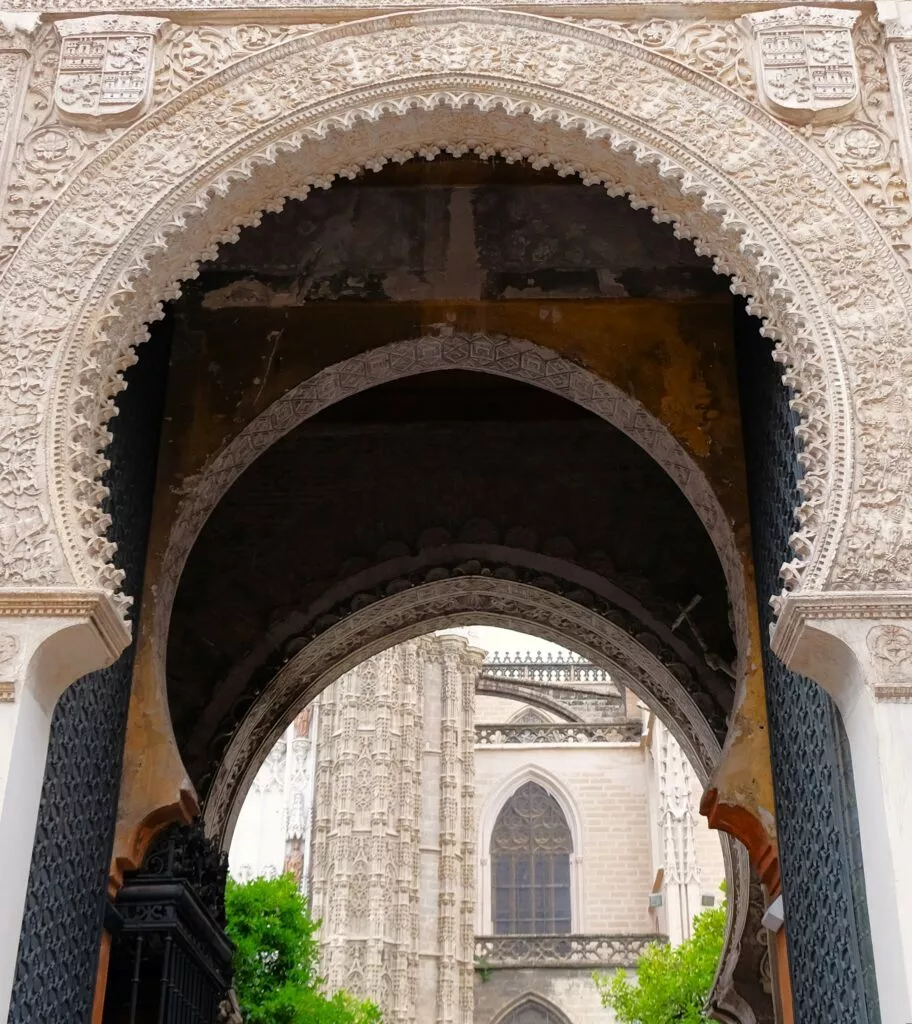
Here you will find everything you can see in Seville in 3 days. And for those who will stay longer you will also find information on secret Seville and the Santa Cruz and Triana districts.
Cadiz
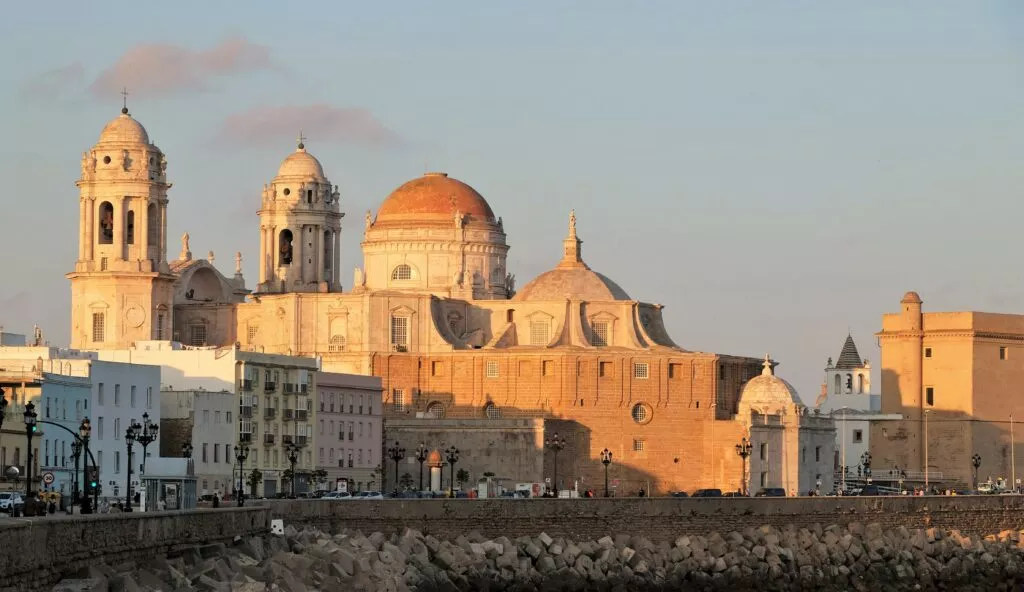
Visit Cadiz, a city with an incredible past and great beauty, on the Costa del la Luz.
Malaga
When you reach the Costa del Sol you will find in this link all must-sees in Malaga :
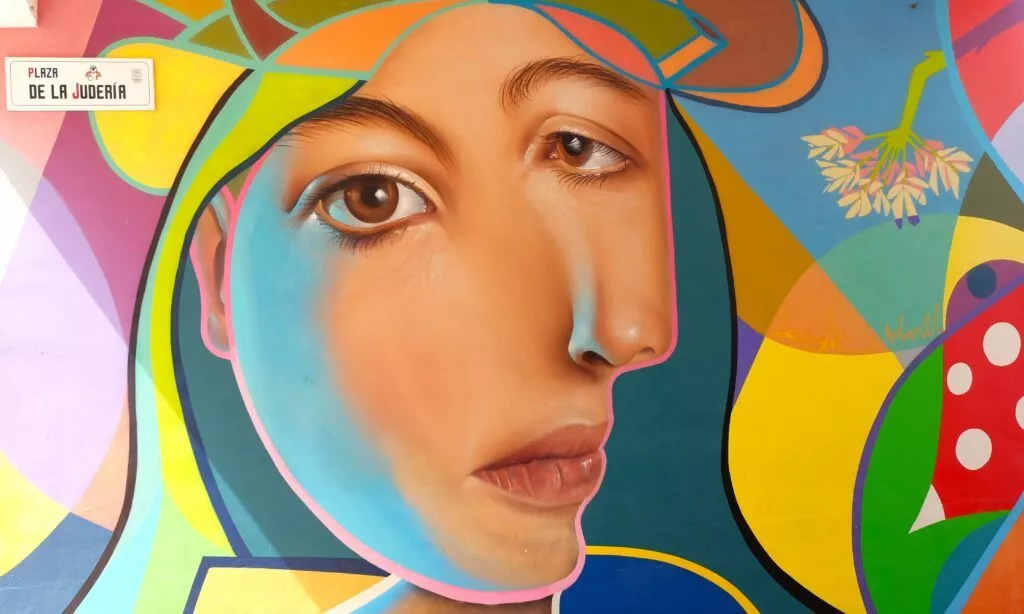
Granada
Discover what to see in Granada, and visit the Albaicin and Sacromonte districts:
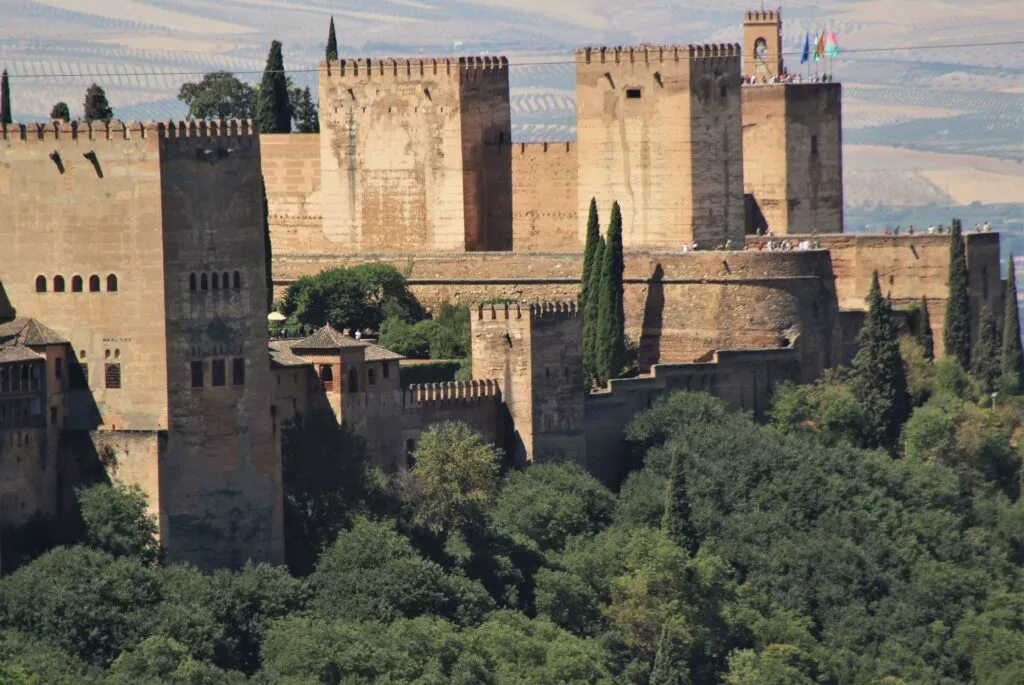
Cordoba
And of course, visit Cordoba, the caliphate city, and the Juderia district
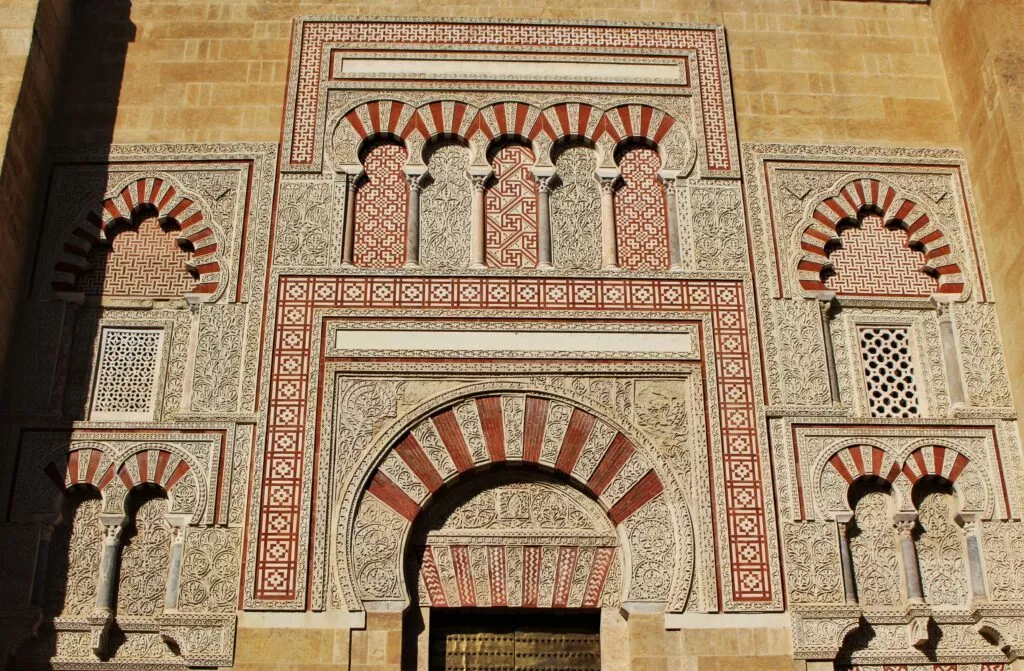
Experiences to discover in the province of Malaga
Find more ideas for visits to authentic Andalusia: see the blog pages on Andalucia.
Here is the link to receive our newsletter from the andaluciamia.com blog
Here are the latest articles on Andalucia
-
Interactive map of Andalucia with best places to see
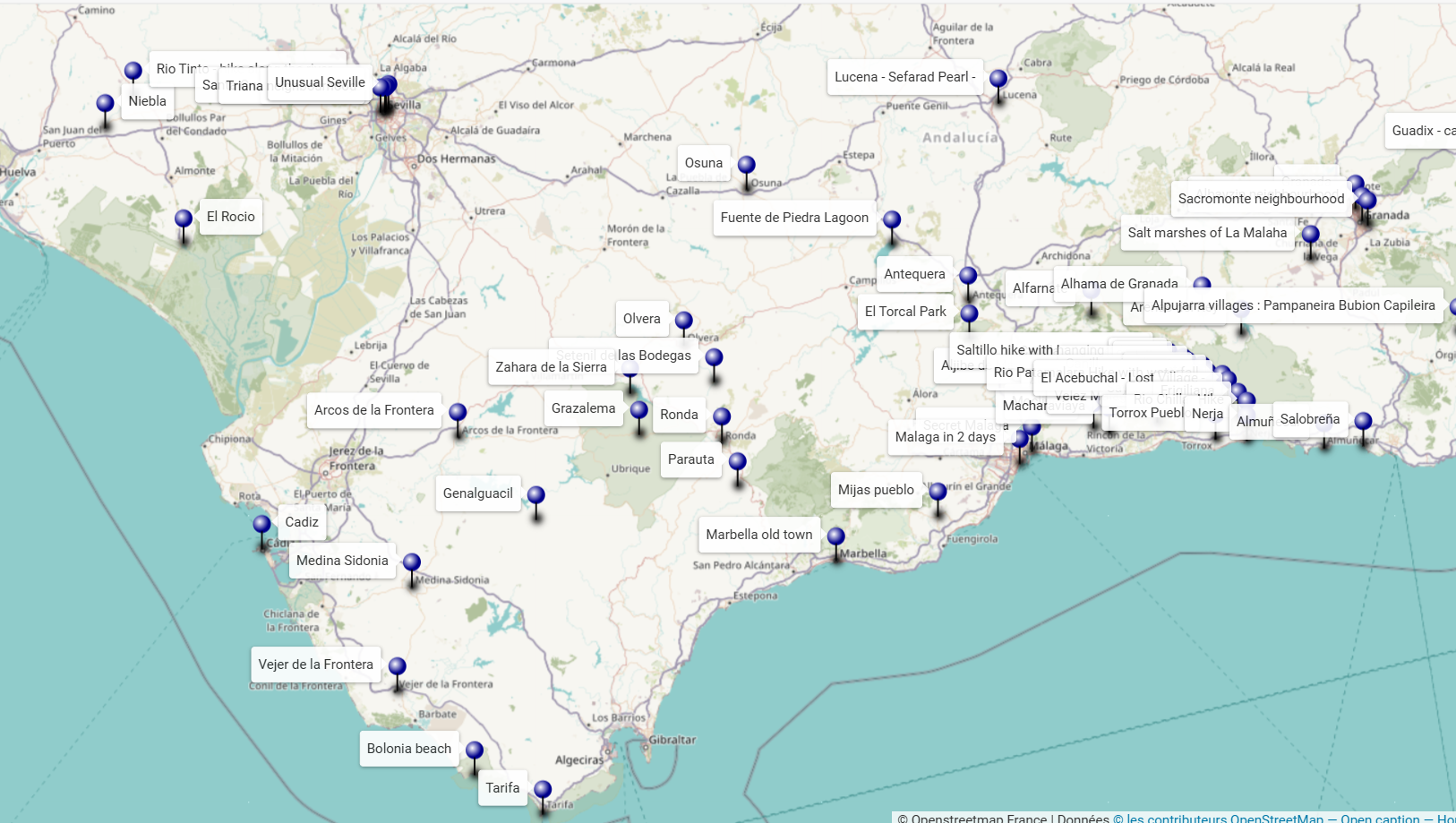
An interactive map of Andalucia to discover the sites to see around your holiday destination or to prepare a tour or road-trip.
-
Andalusia off the beaten track : 18 gems
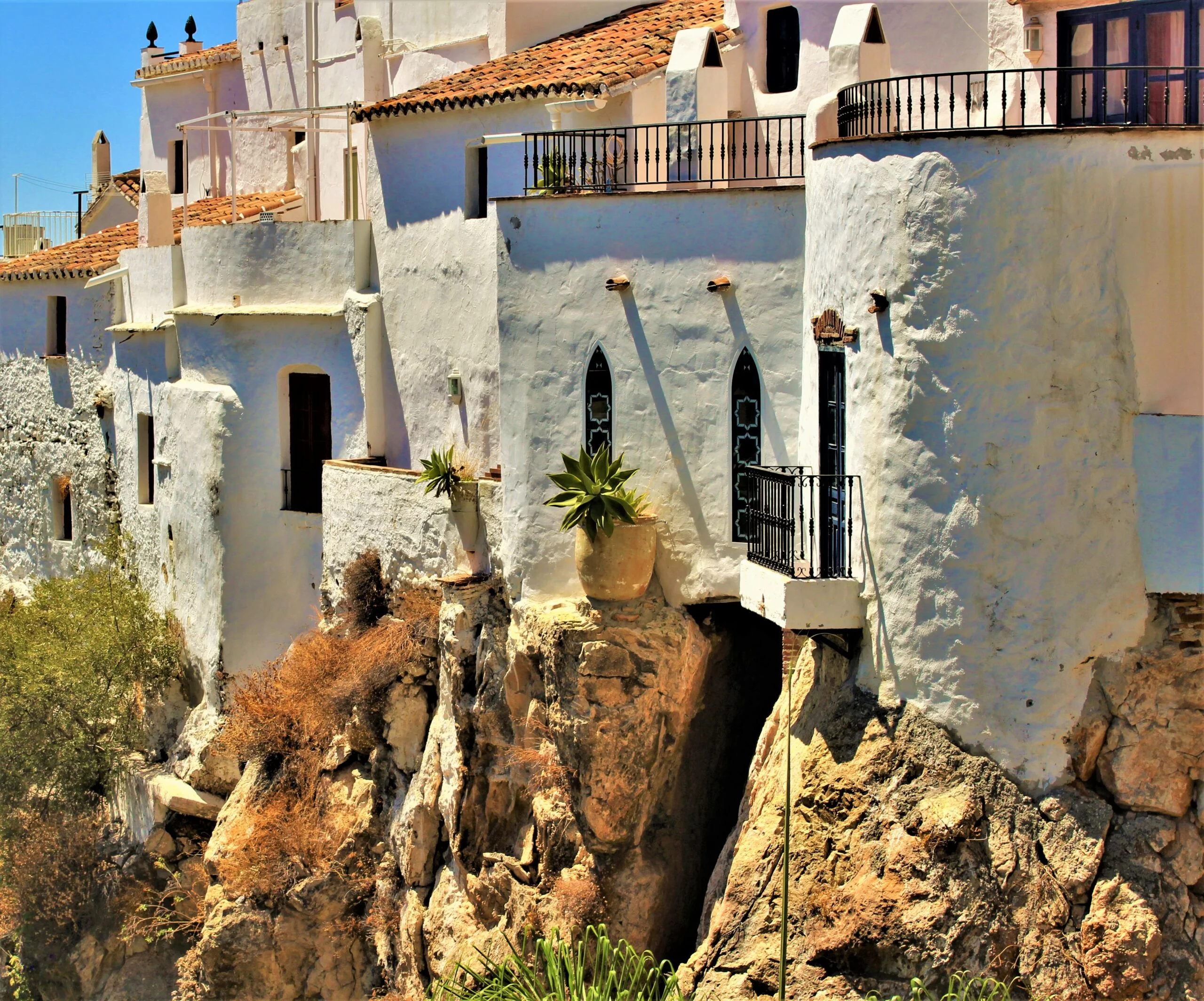
Let’s immediately set off to discover an Andalusia off the beaten track. There are many wonders to discover.
-
19 Most beautiful white villages in Andalusia

Discovering the most beautiful white villages of Andalusia. These villages are the only ones to be part of the Pueblos más bonitos de España.
-
Unusual Andalusia – 15 Very Surprising Places –
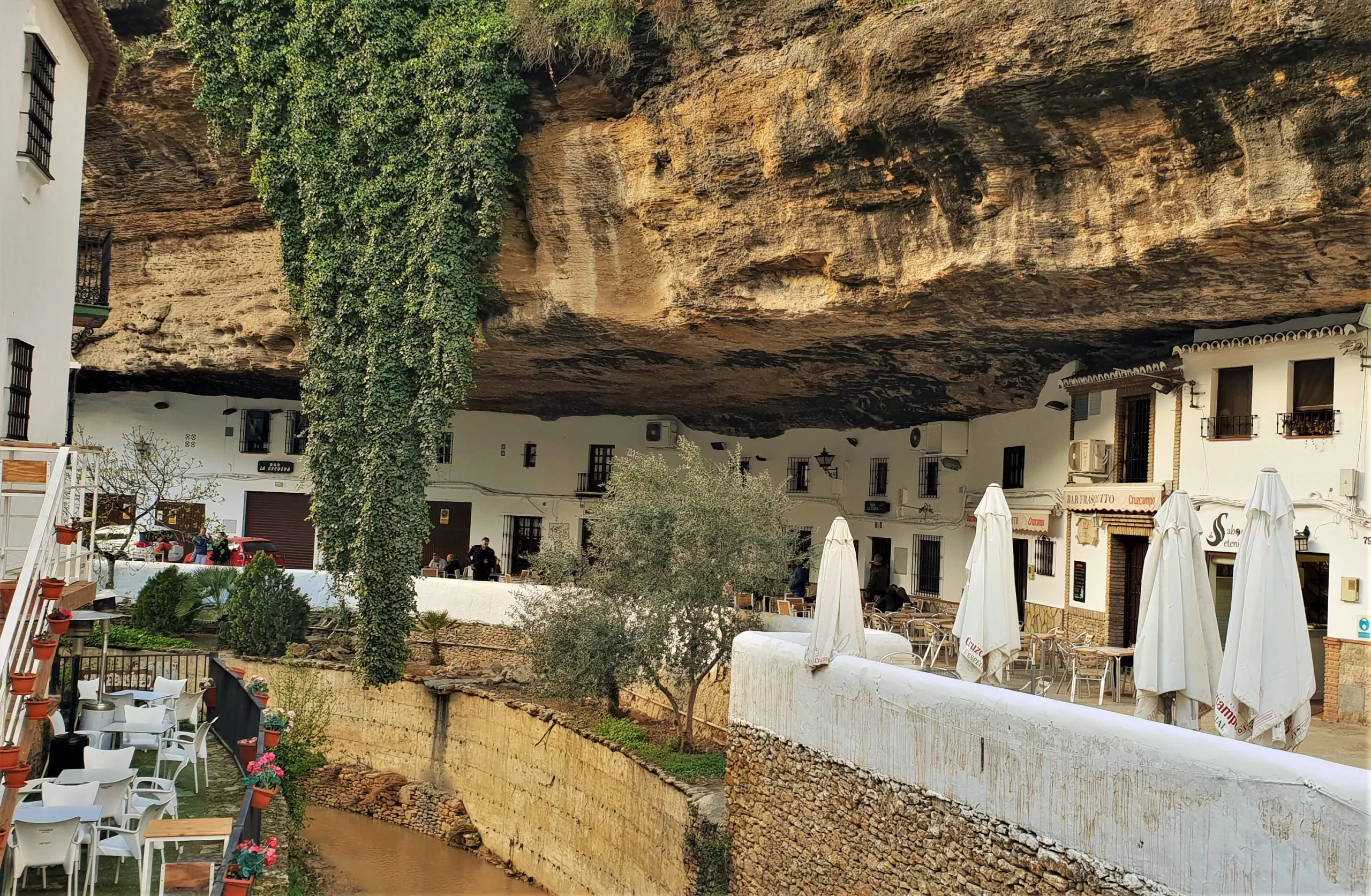
Unusual Andalusia: discover the most surprising and wonderful places in southern Spain.
